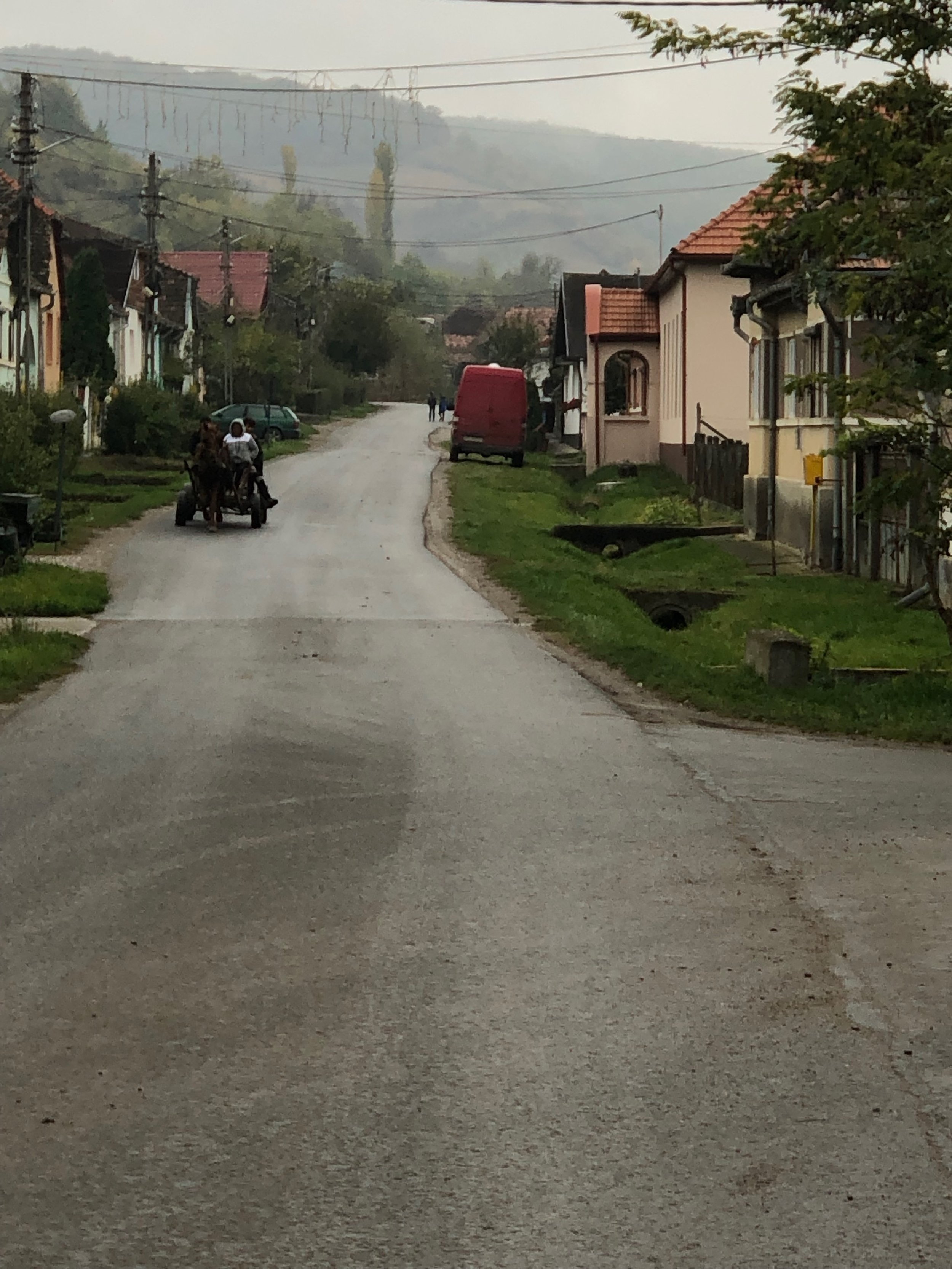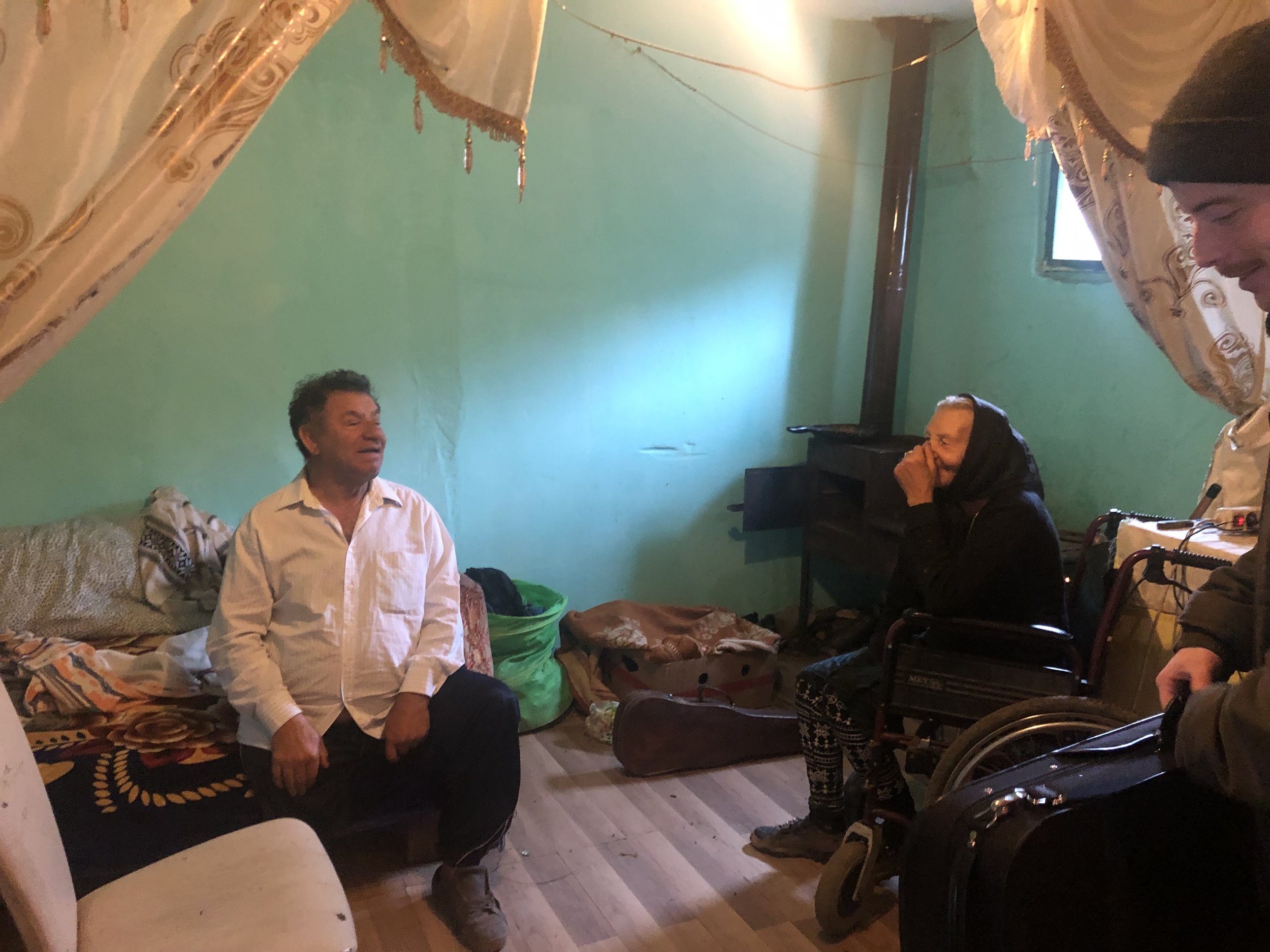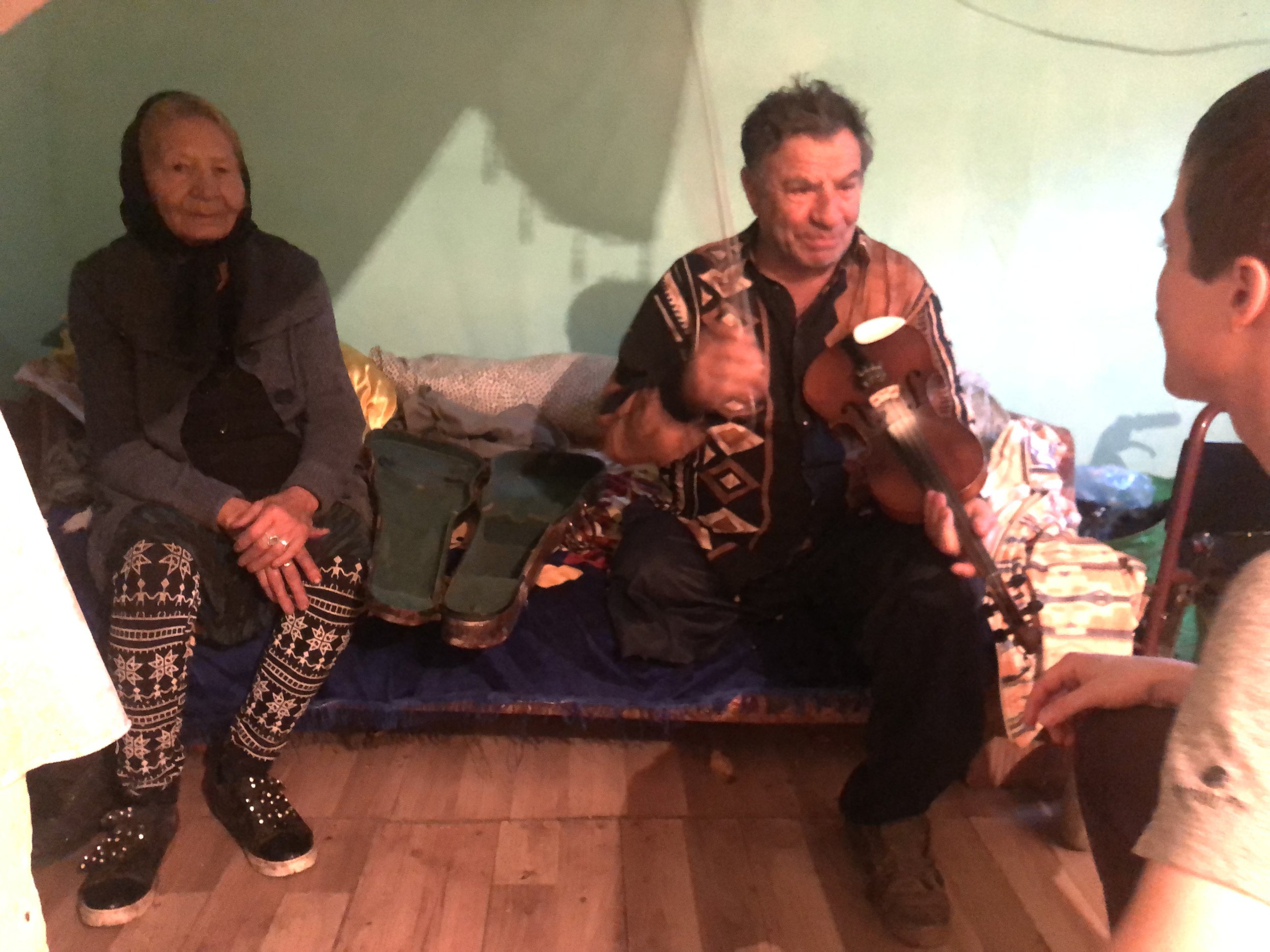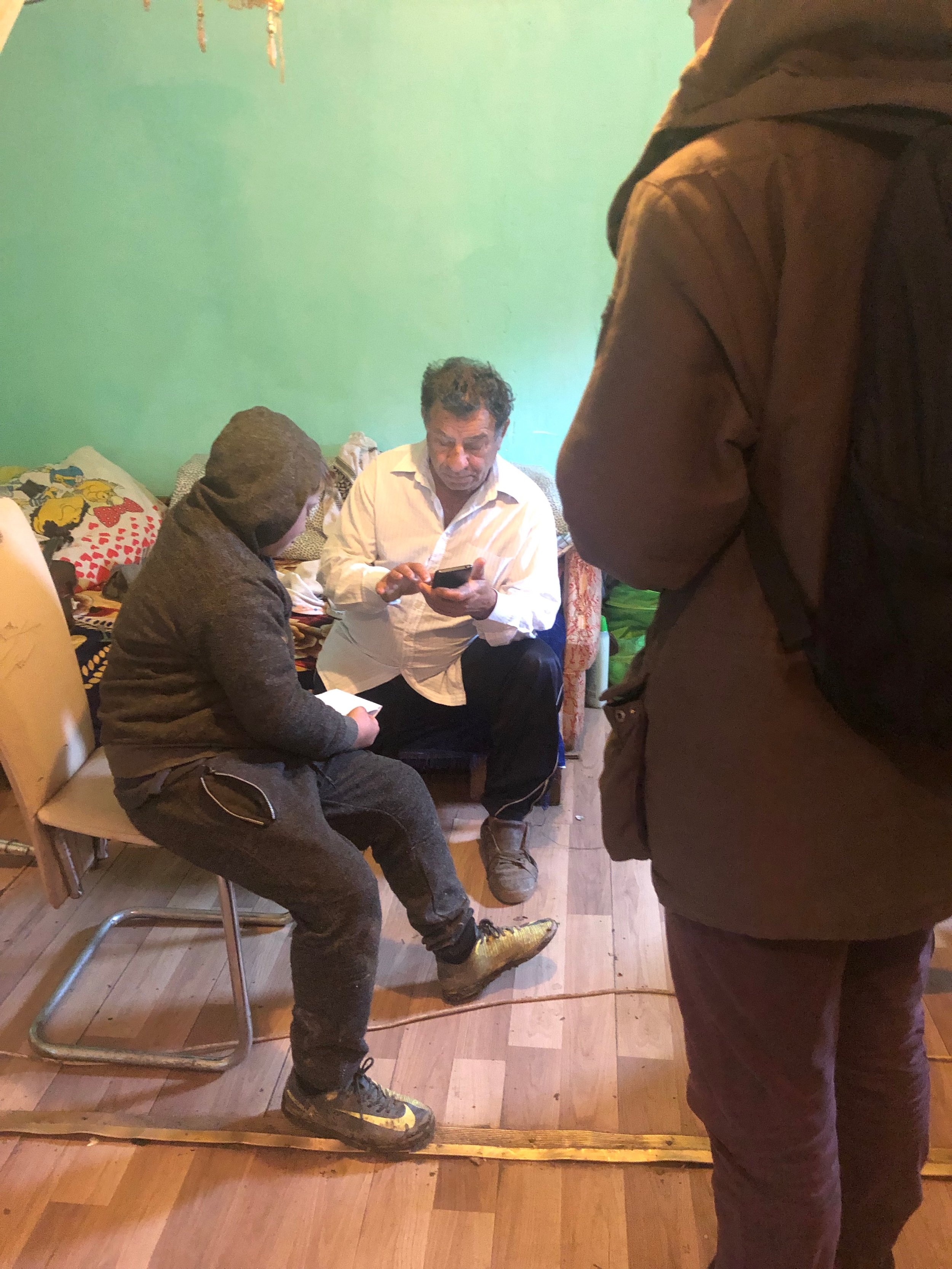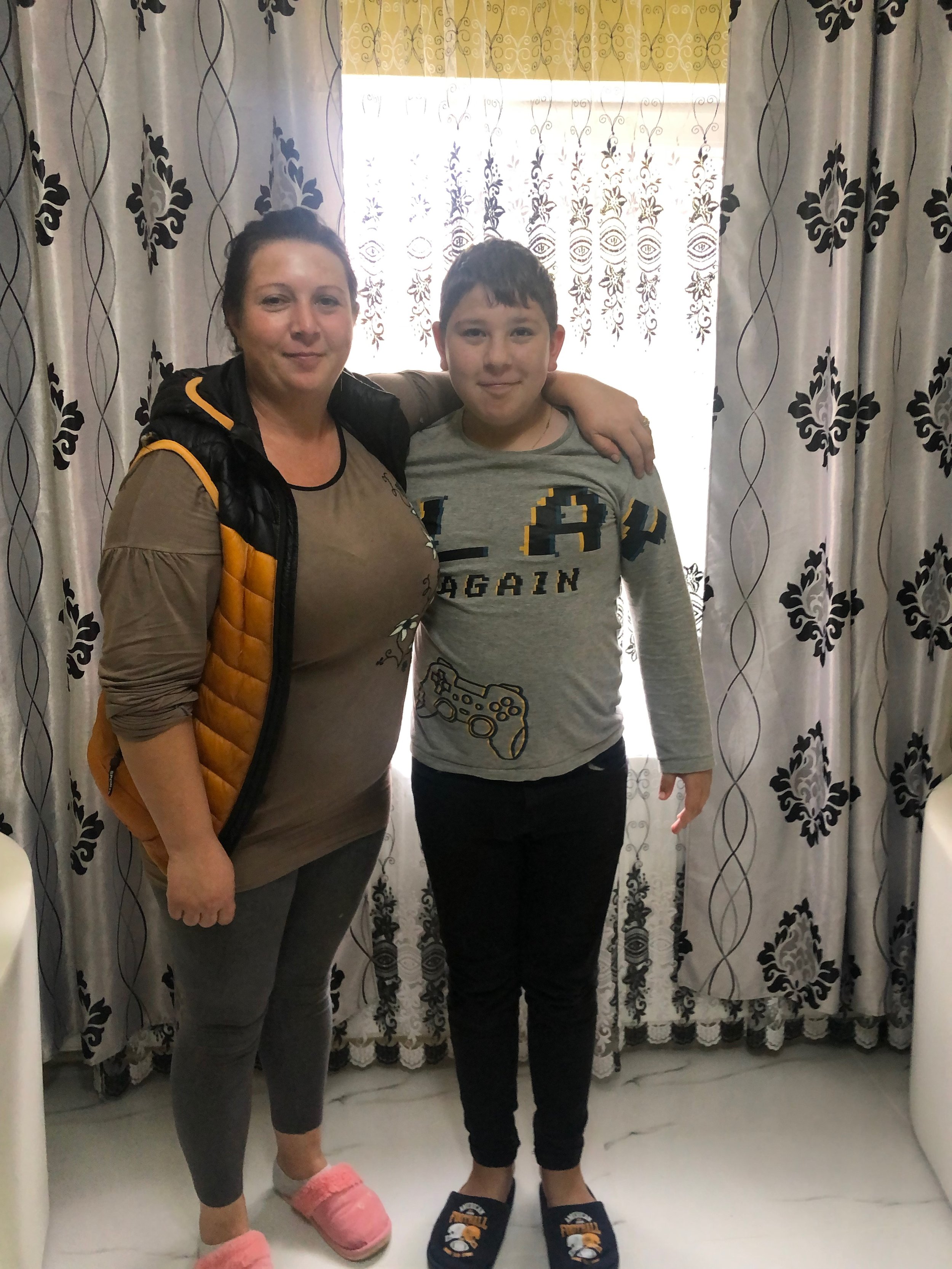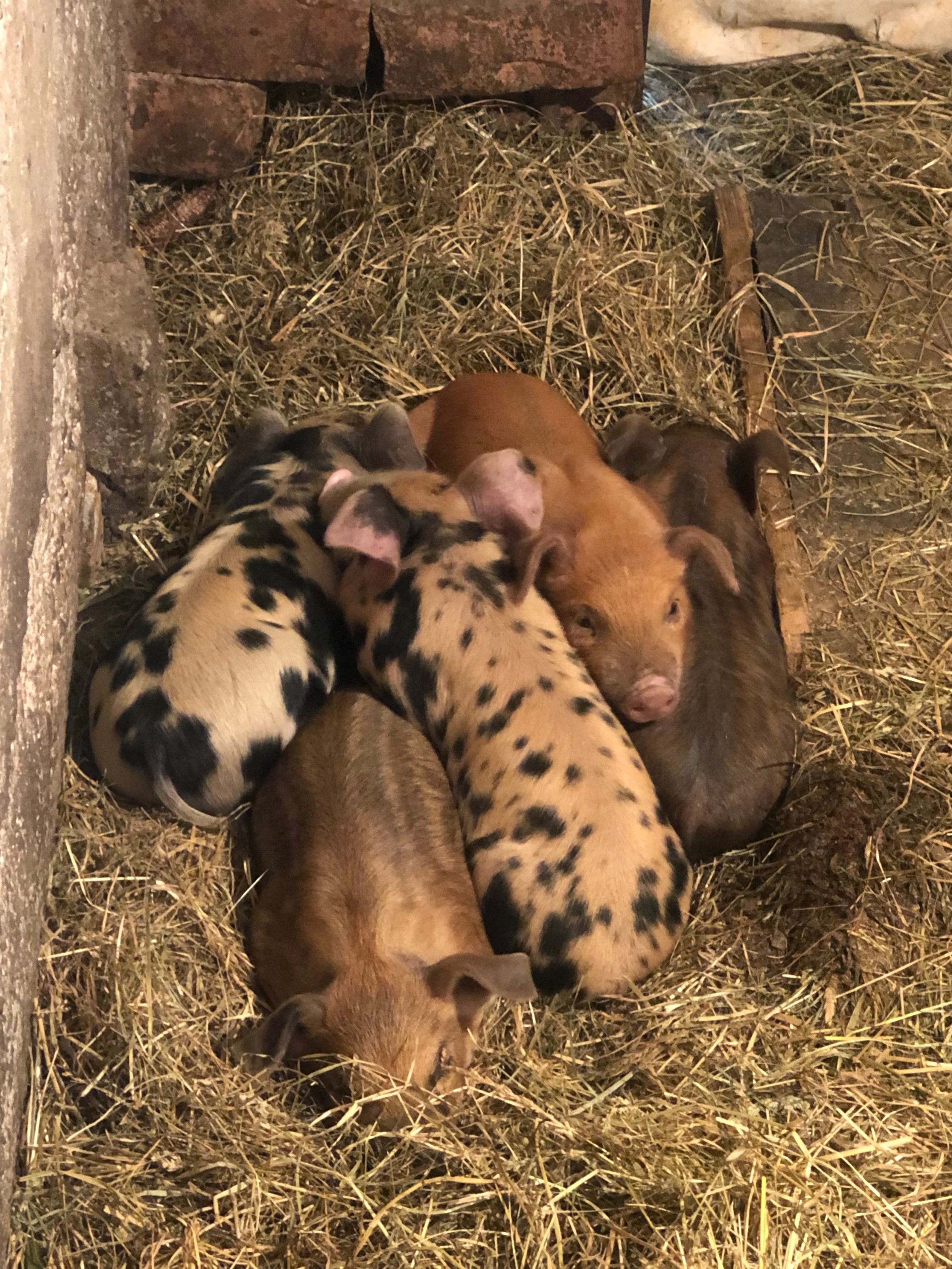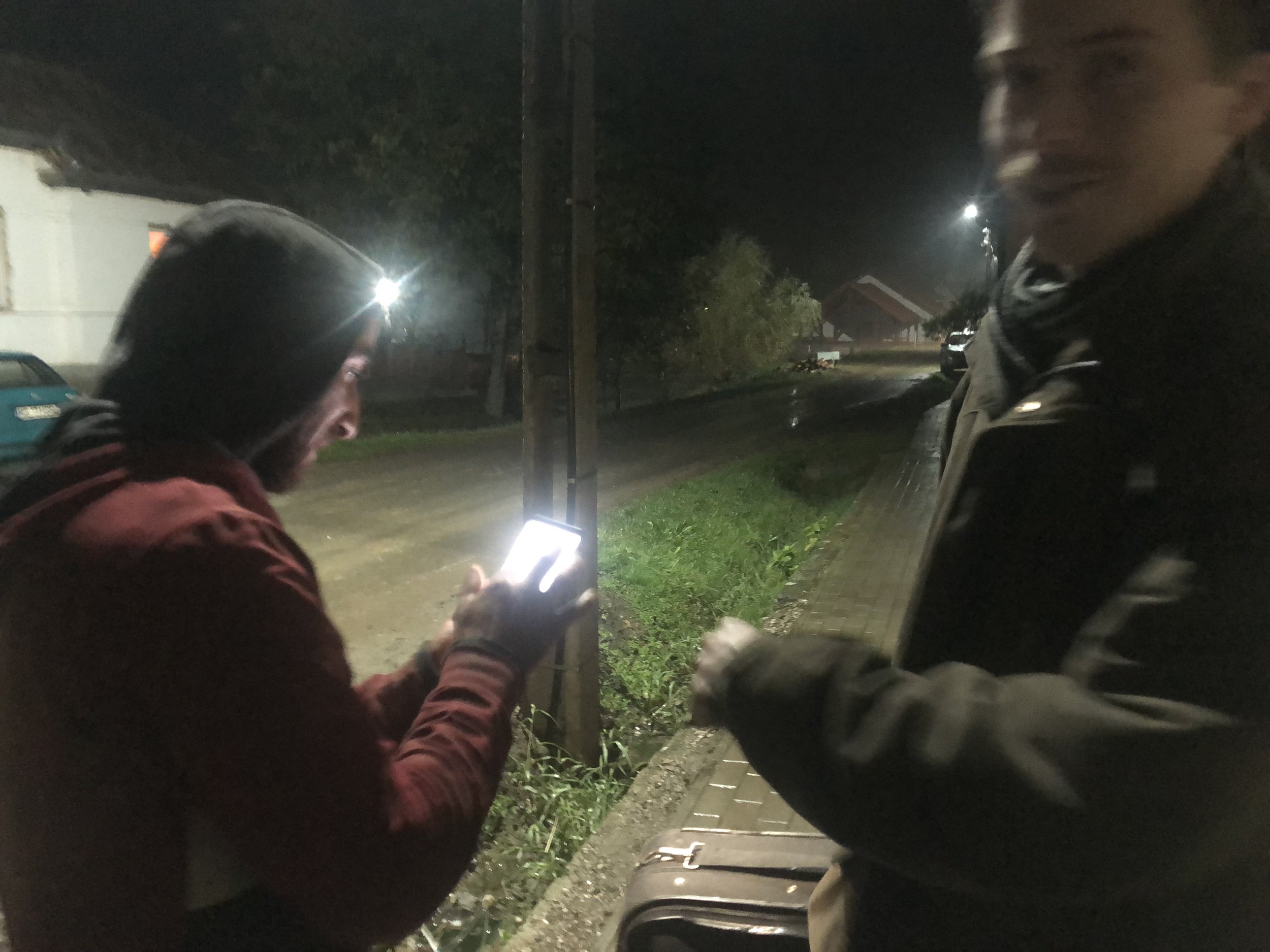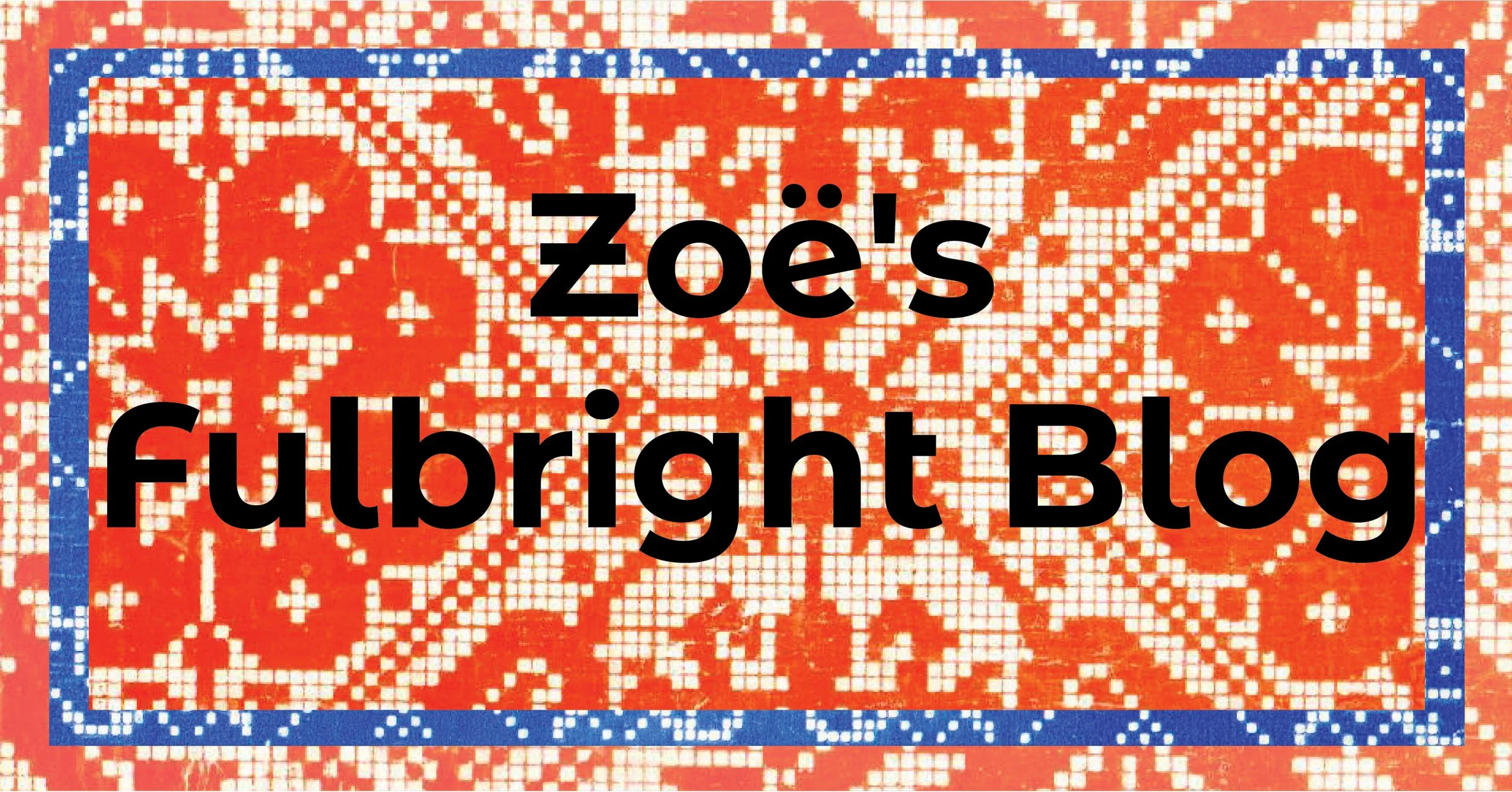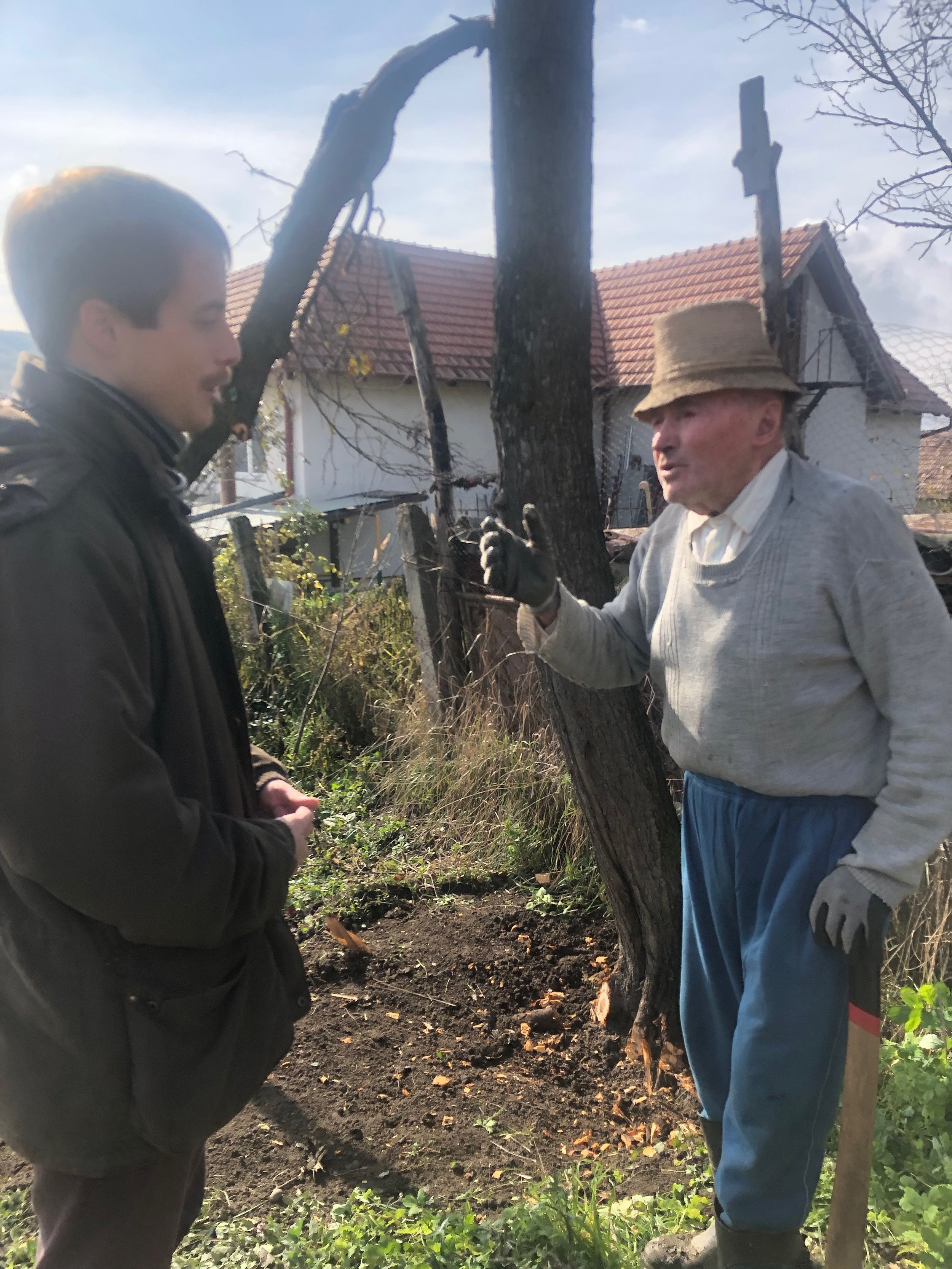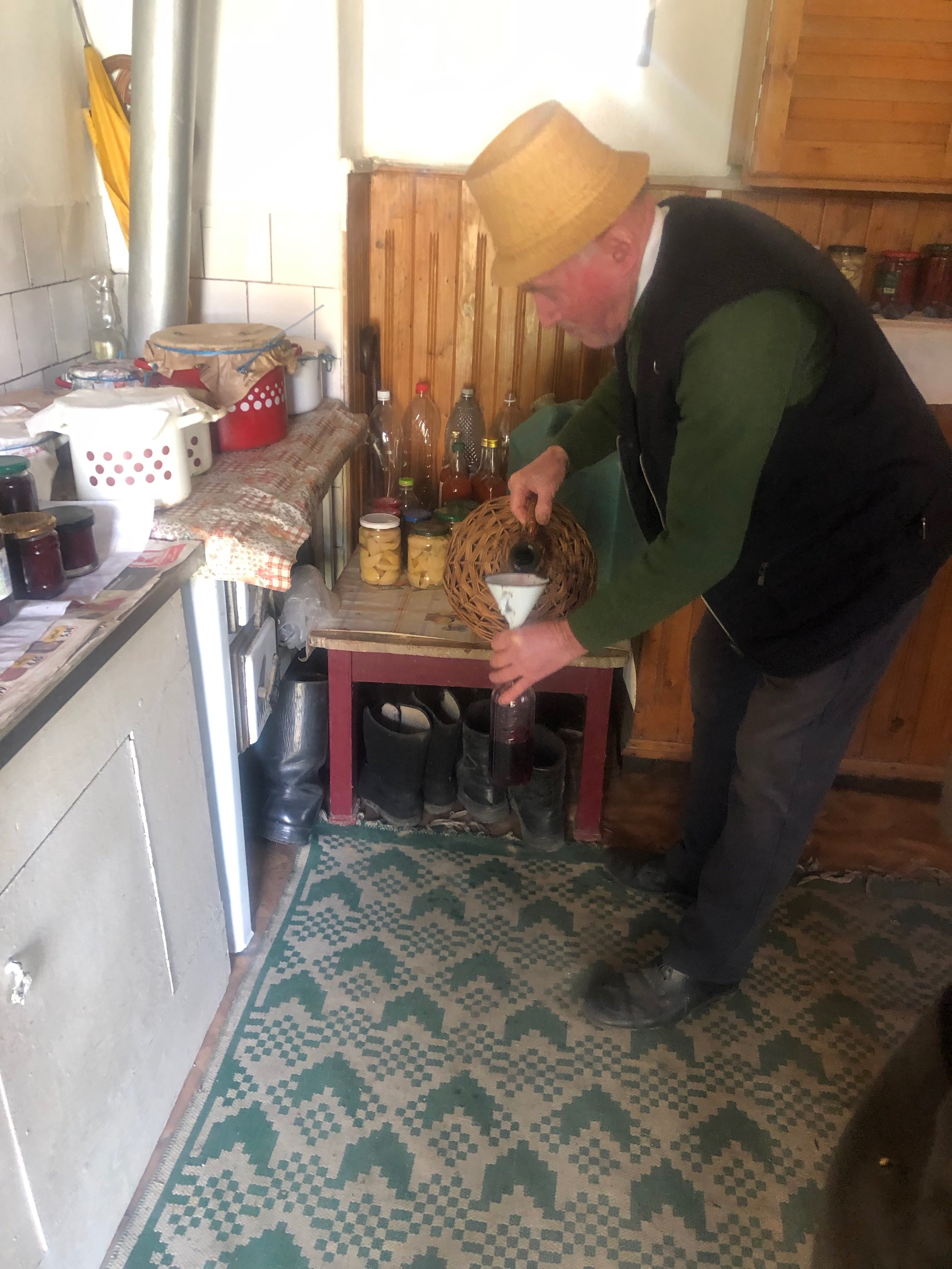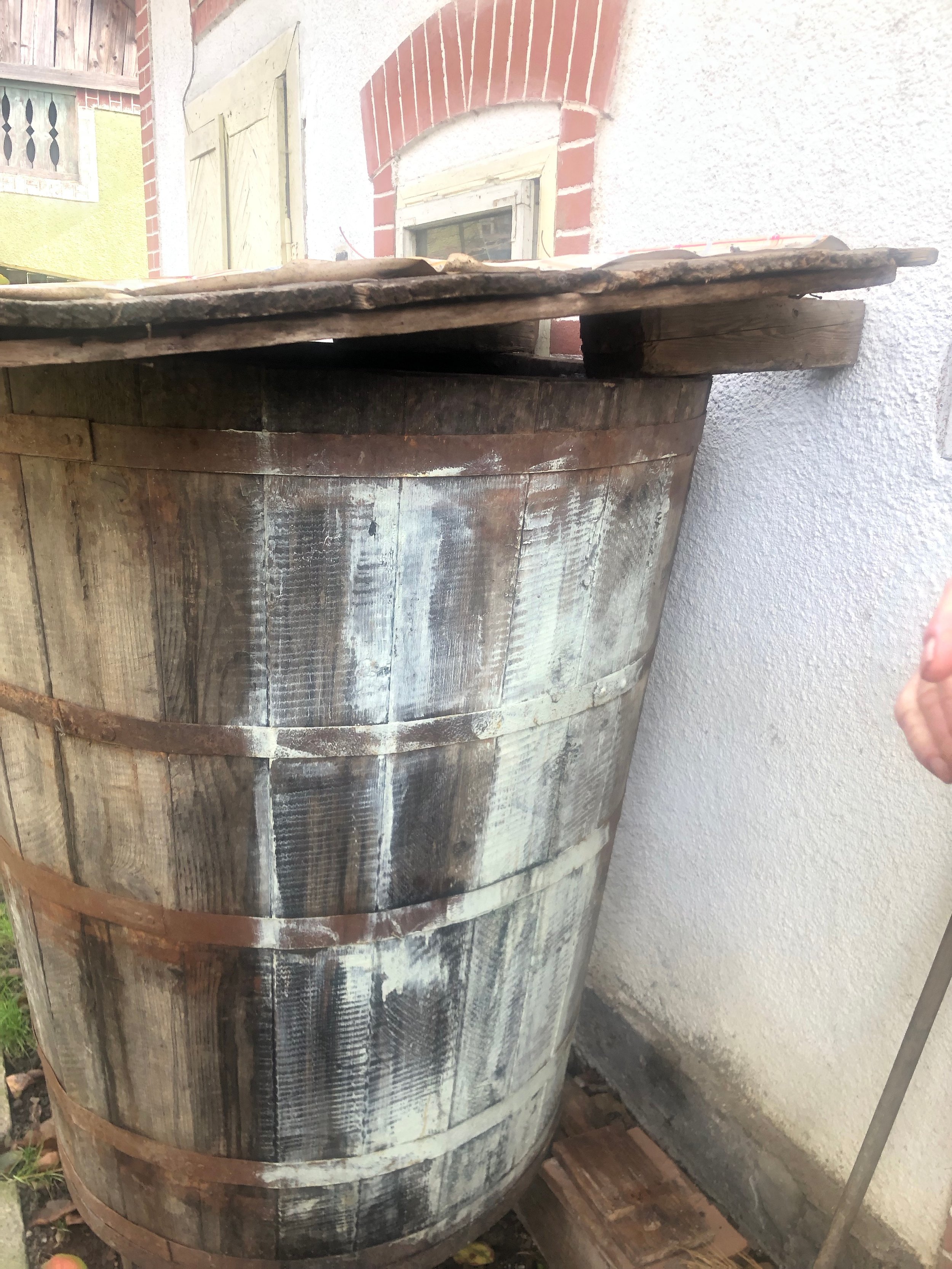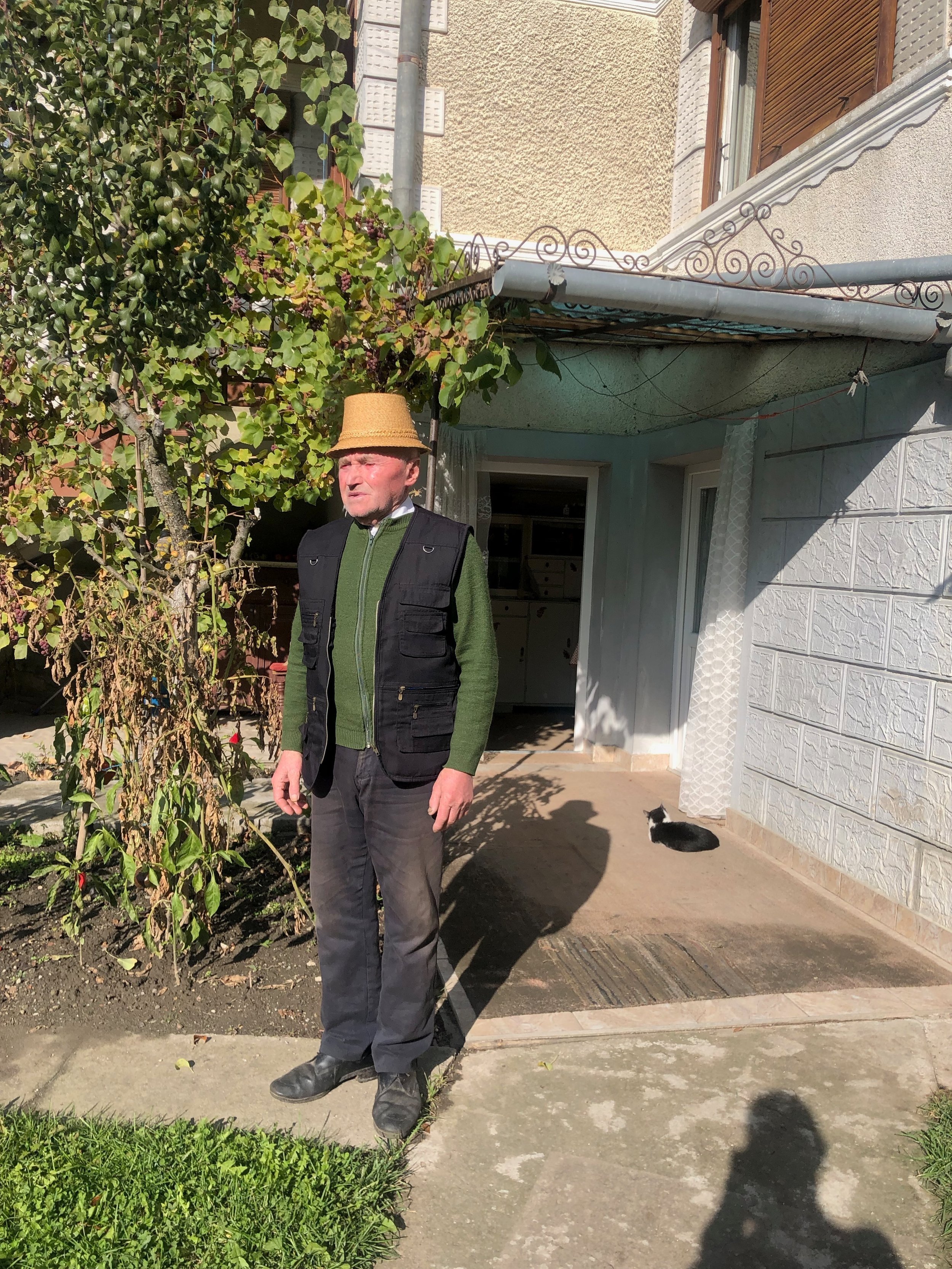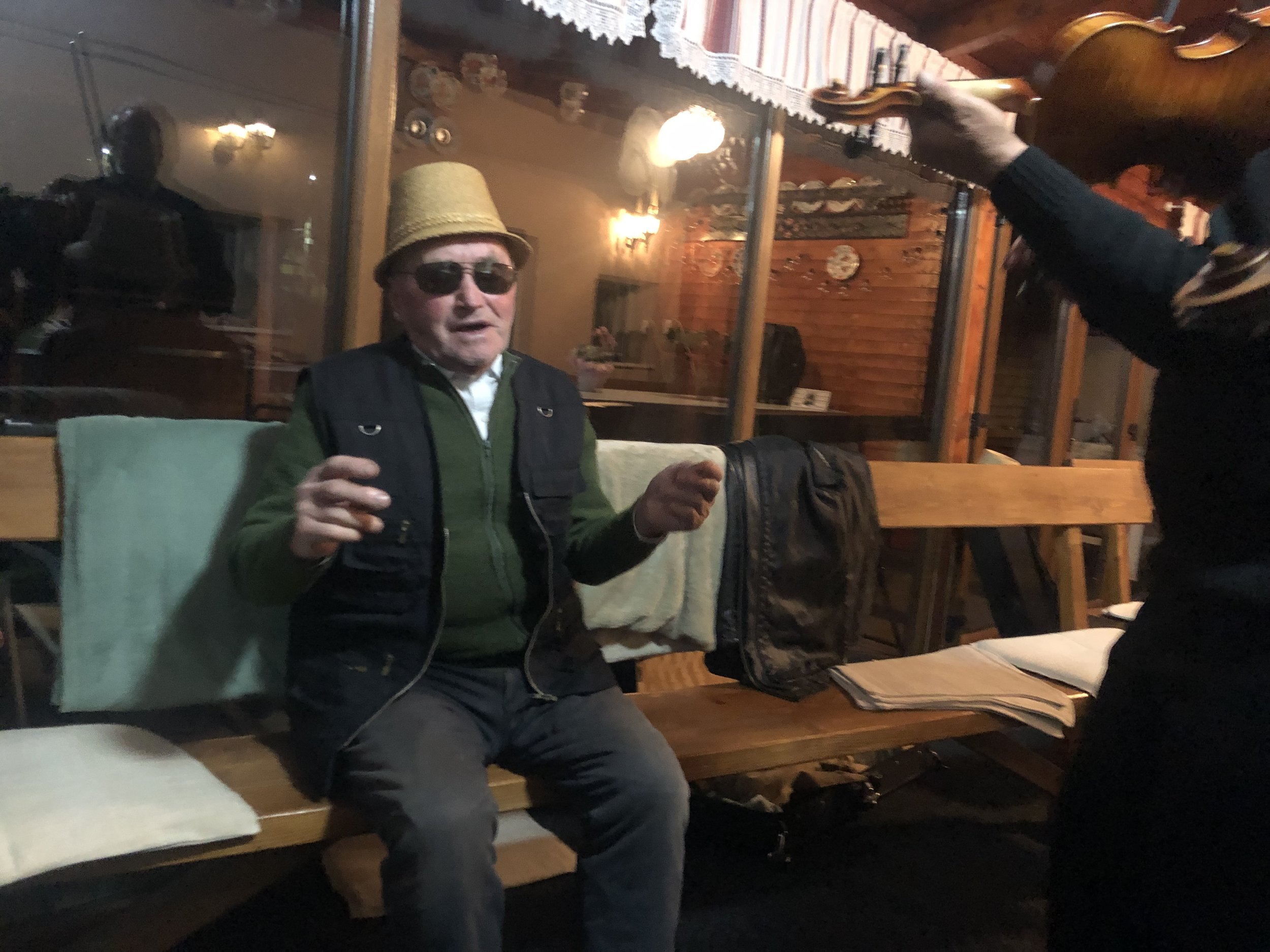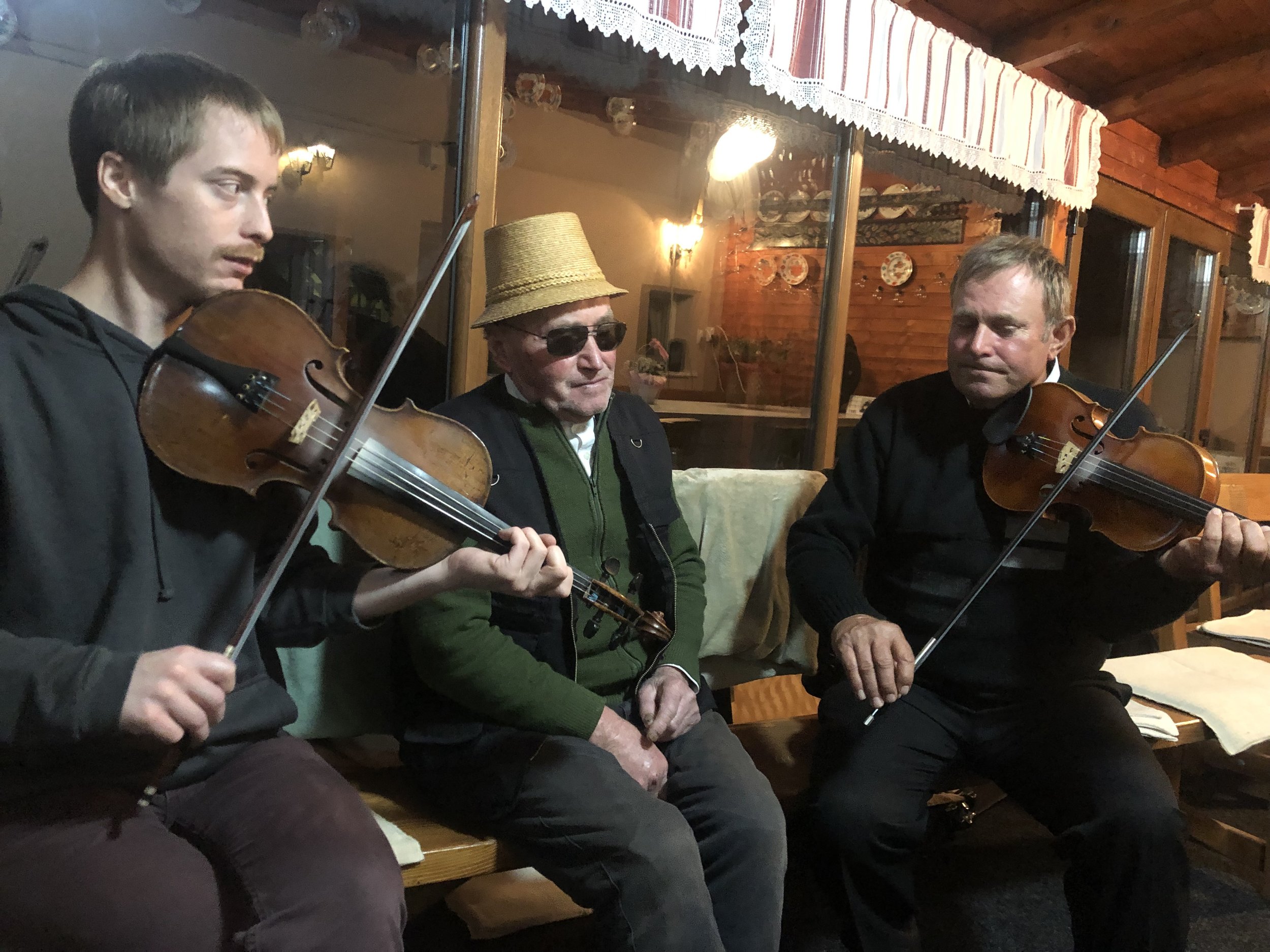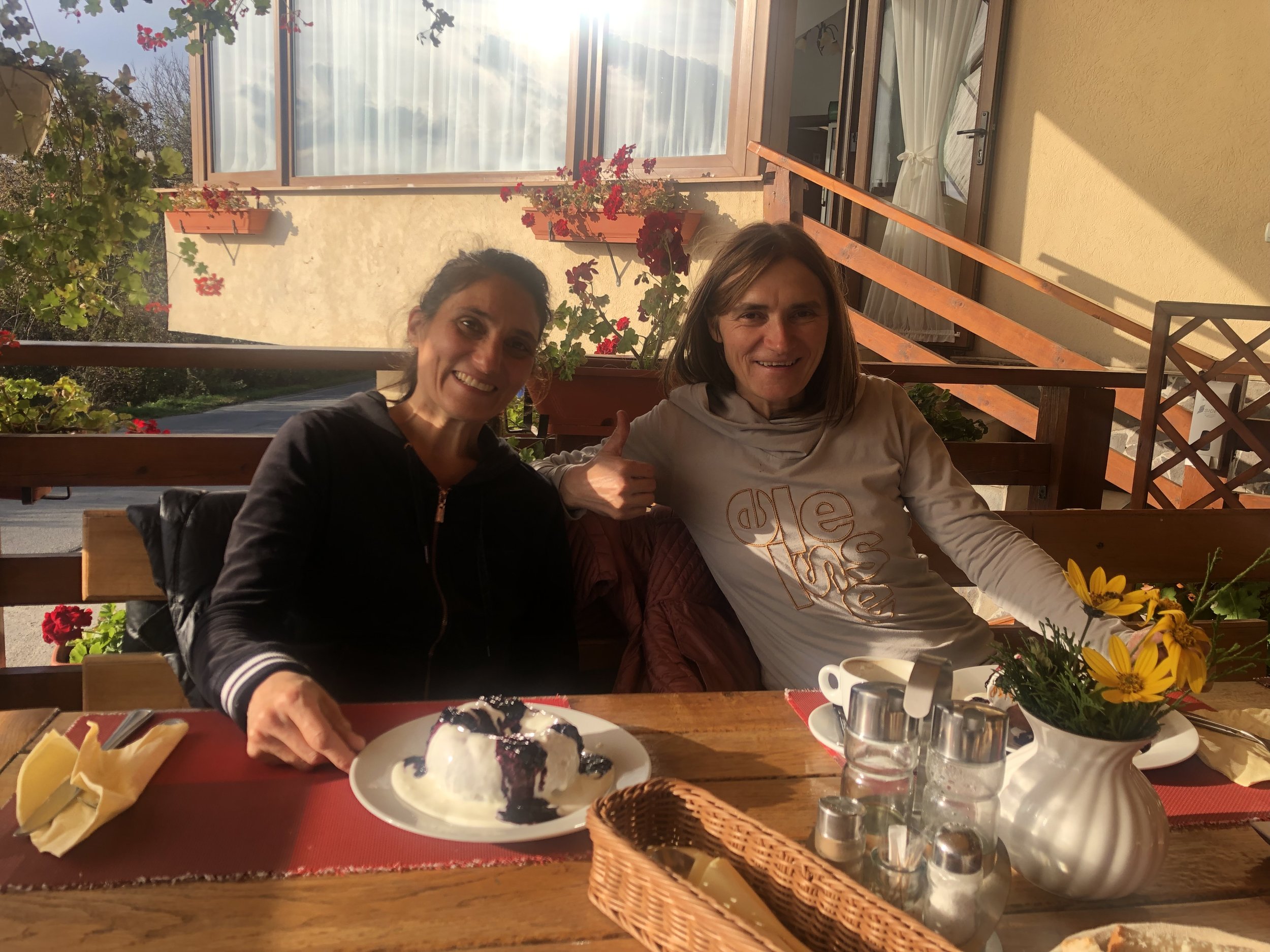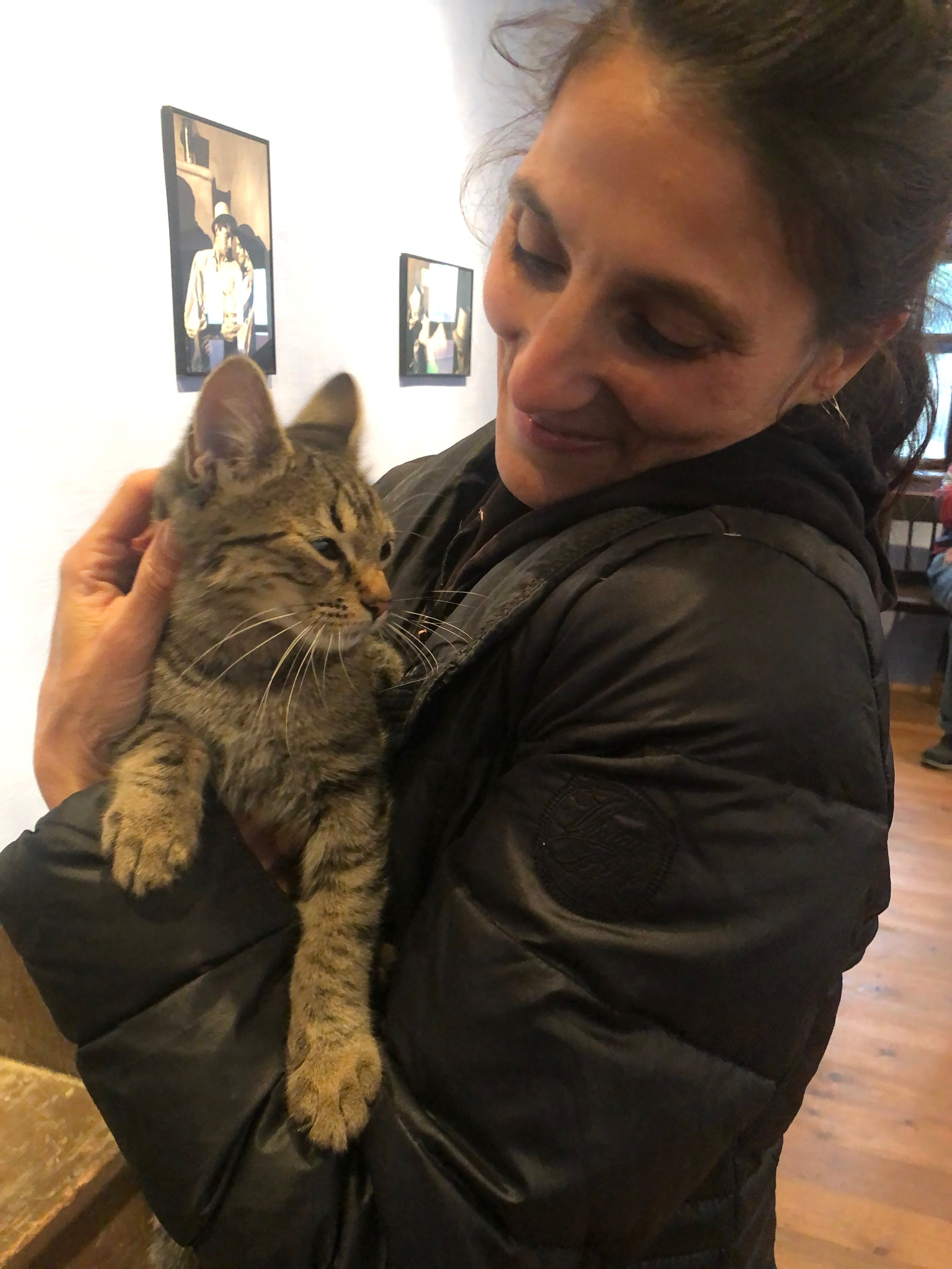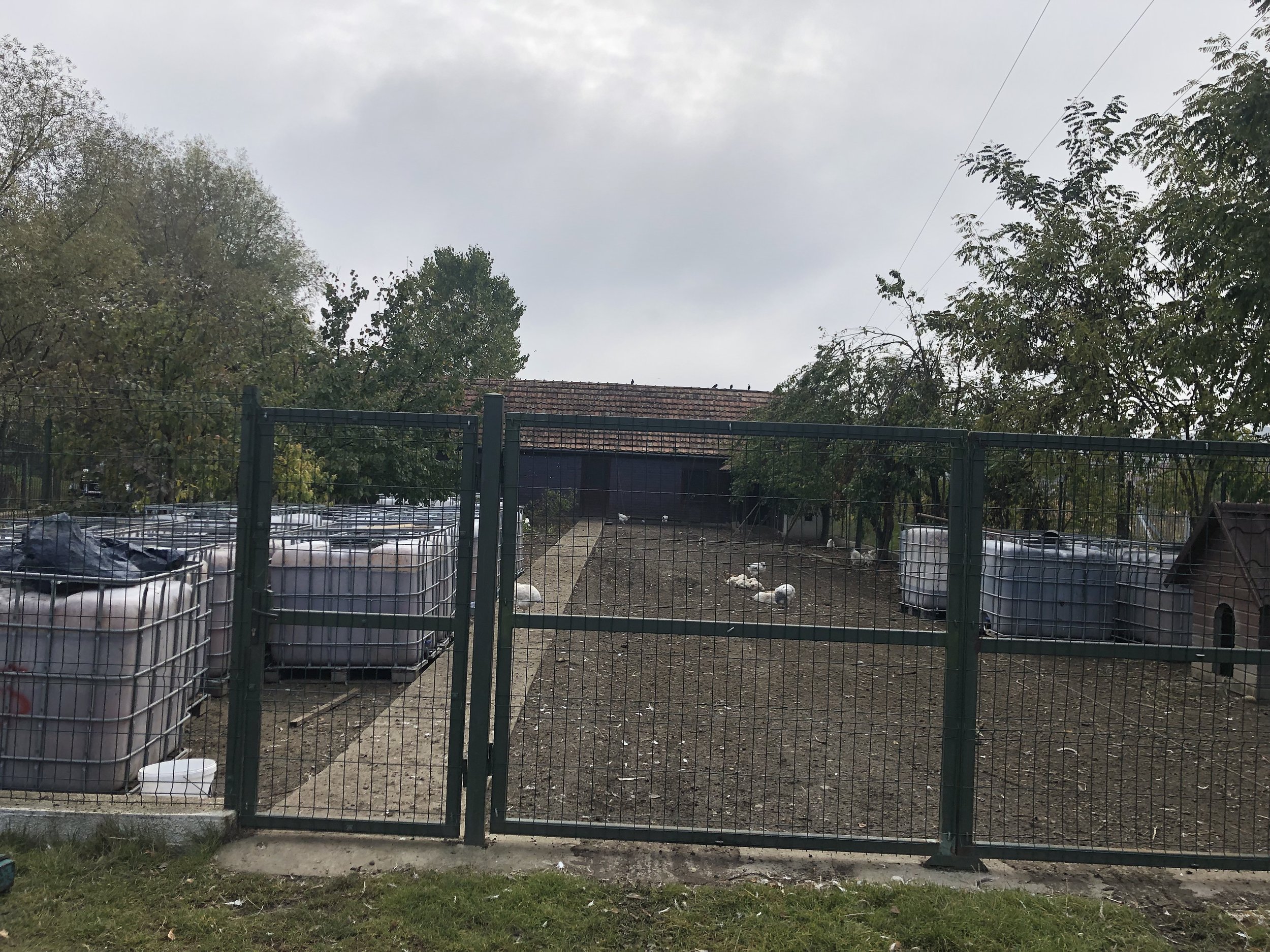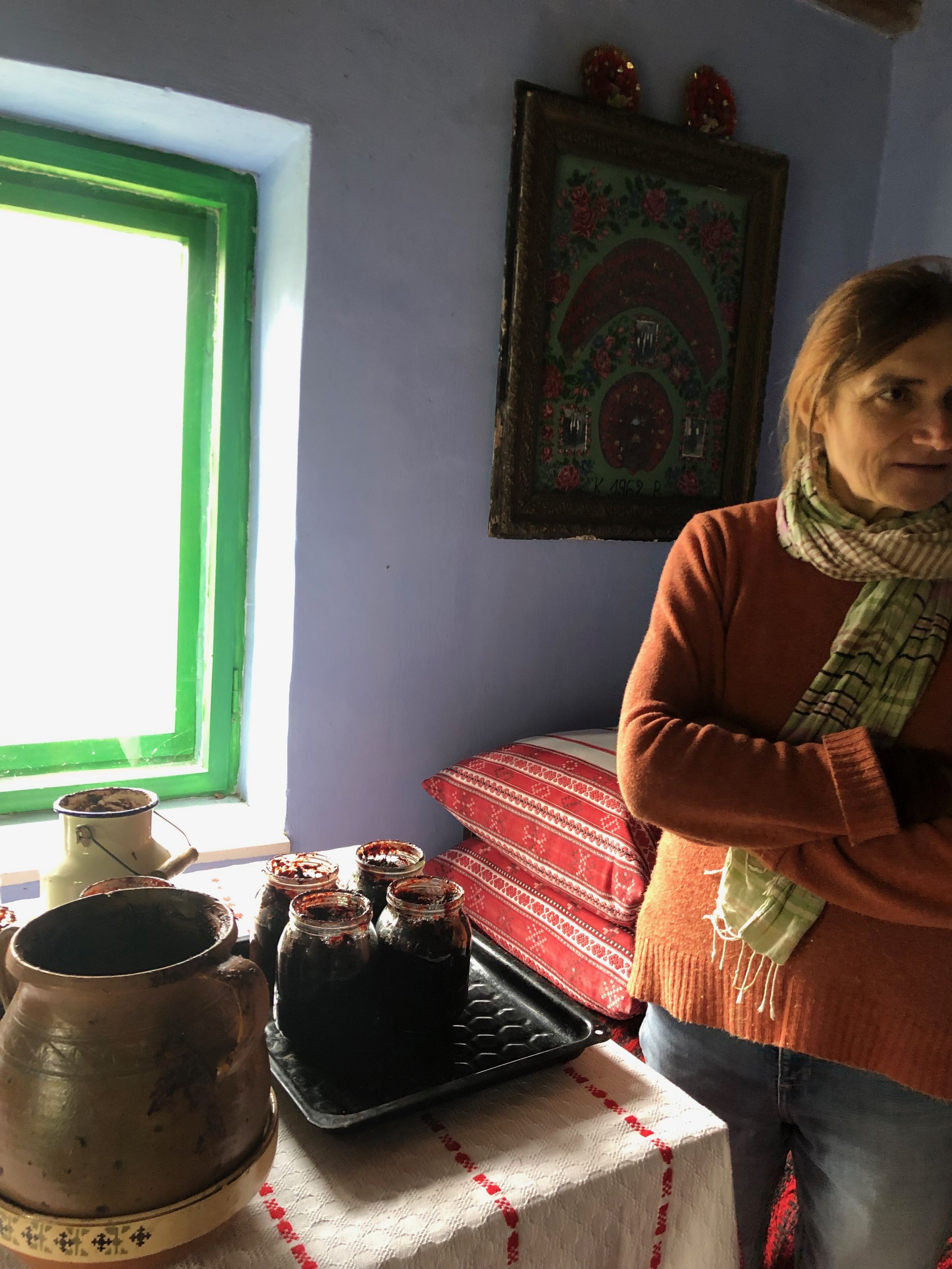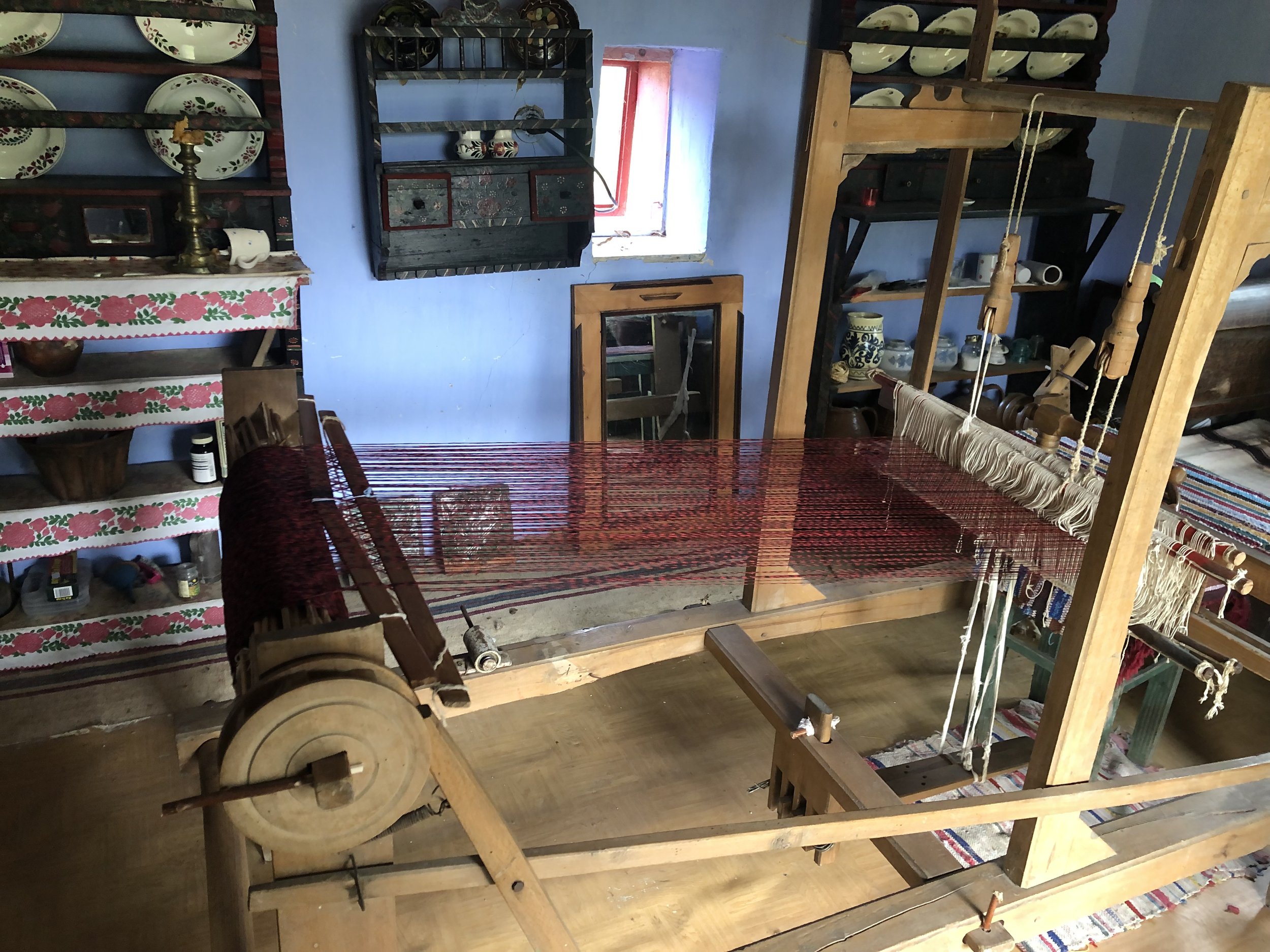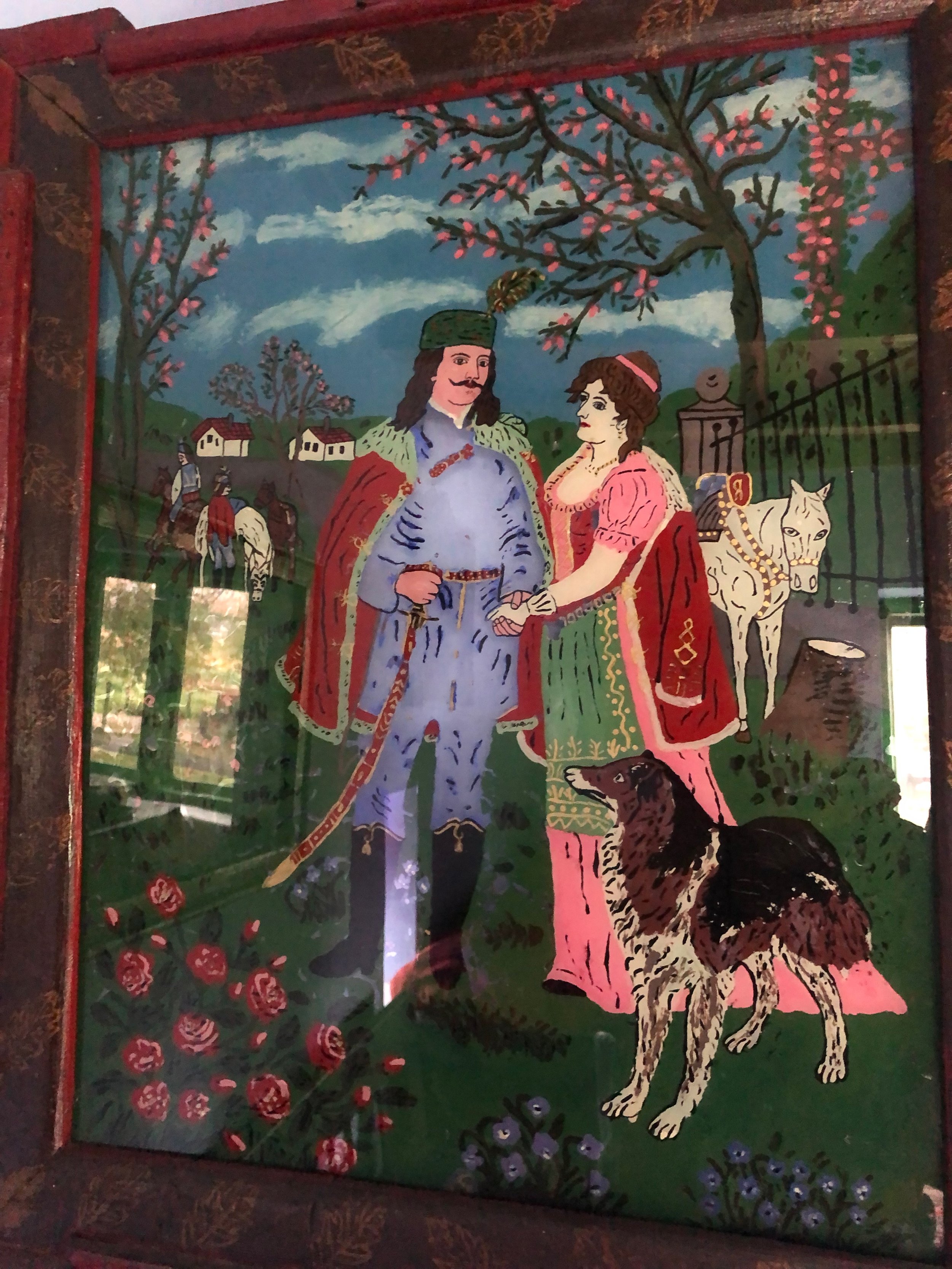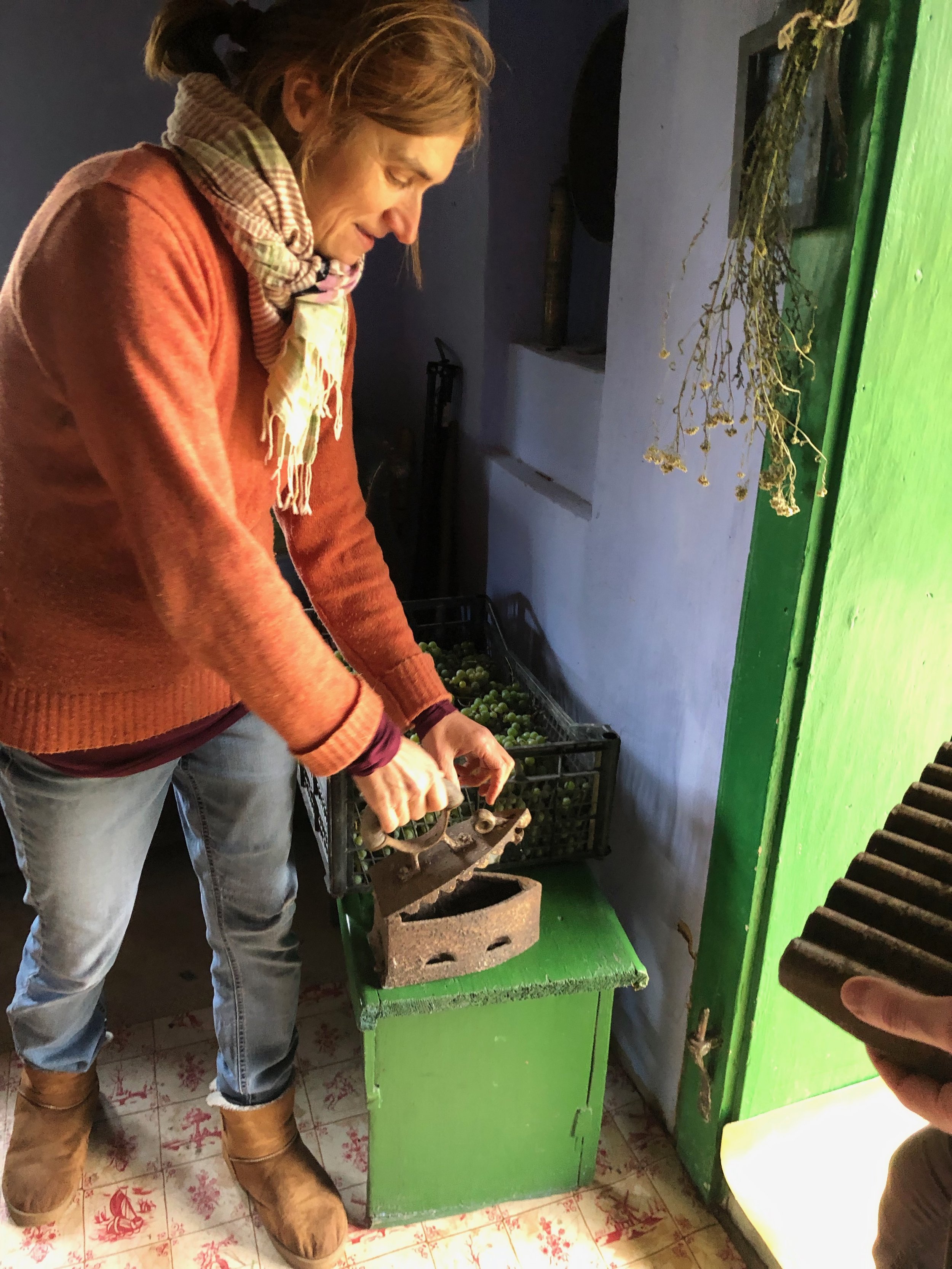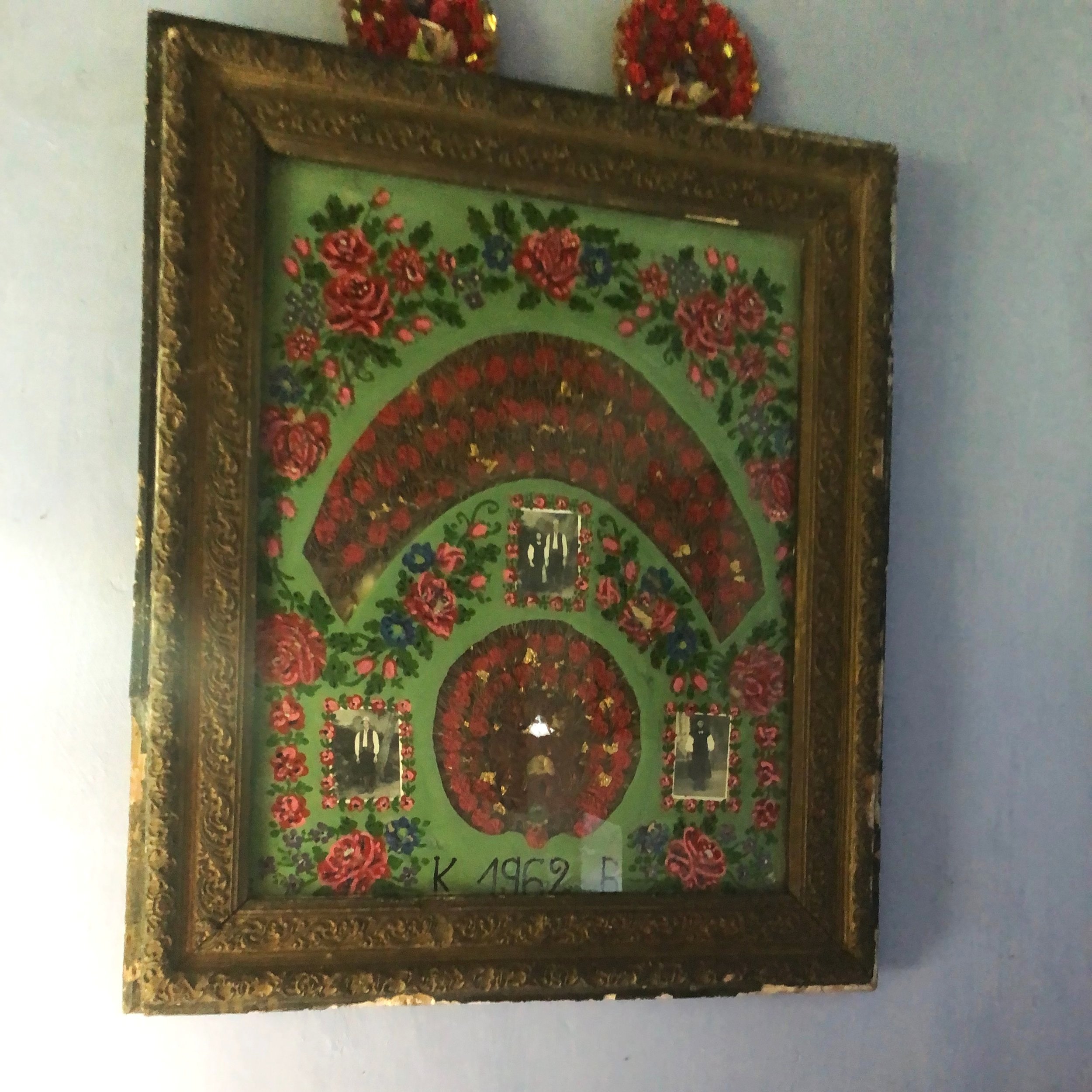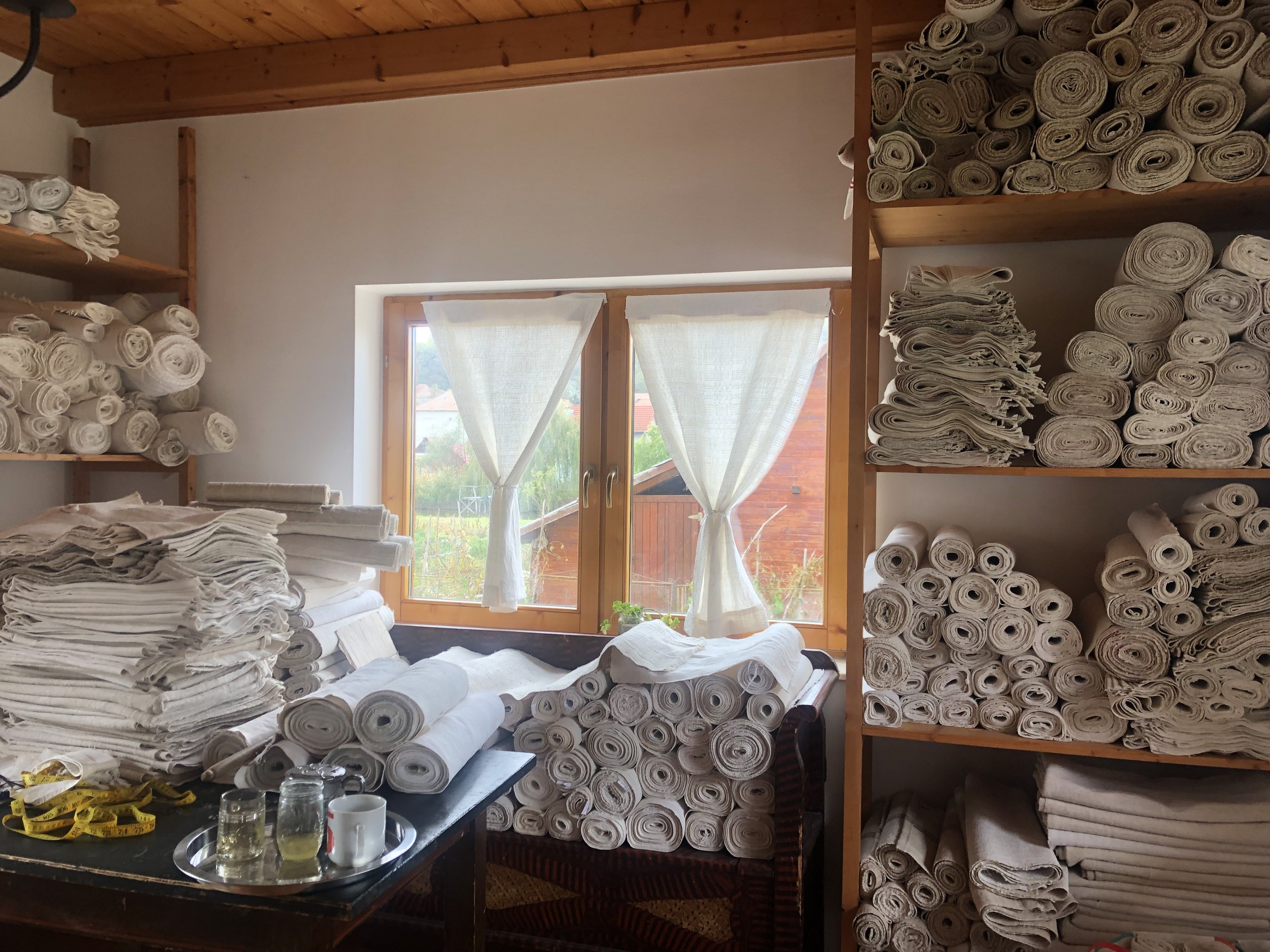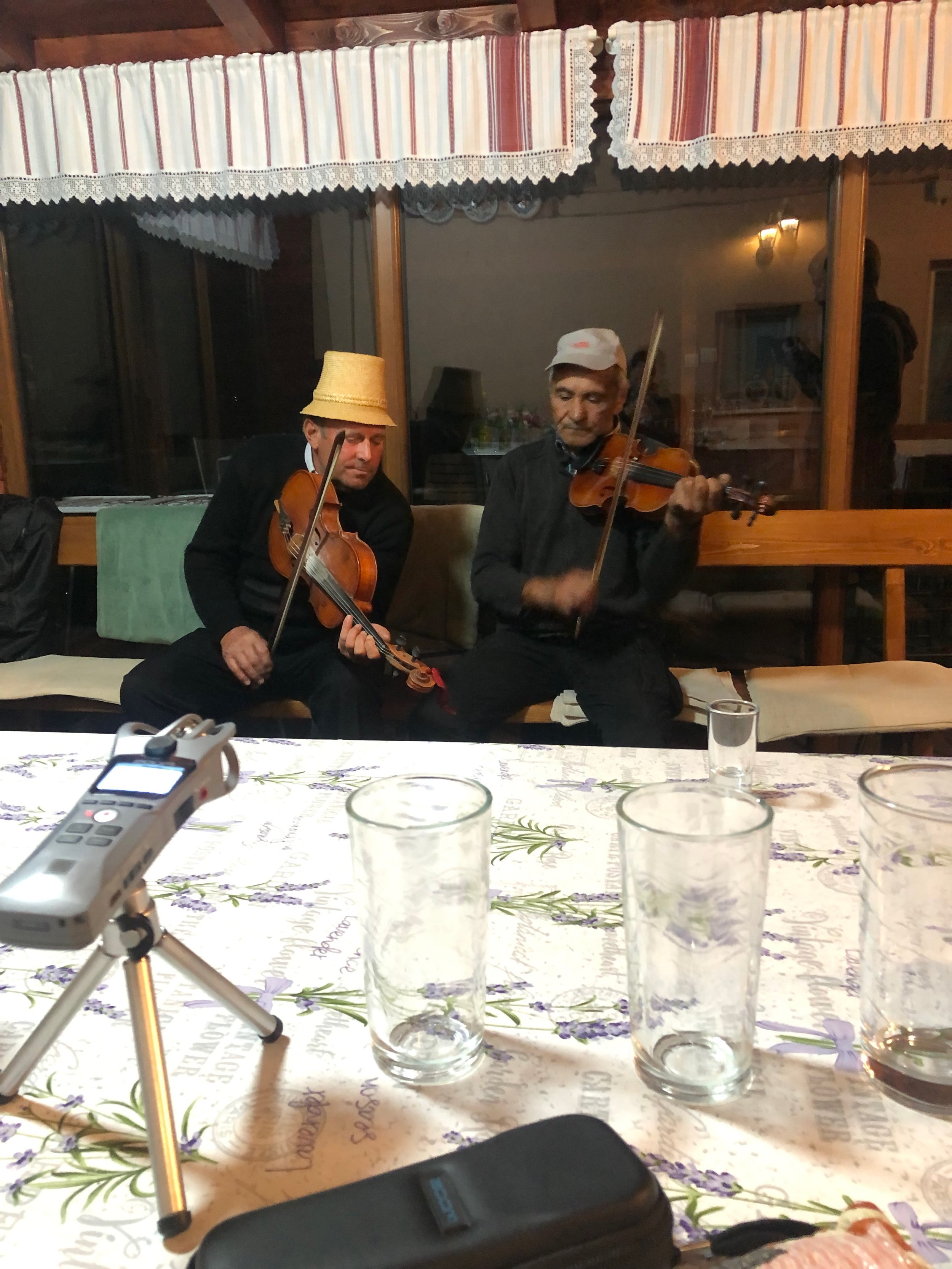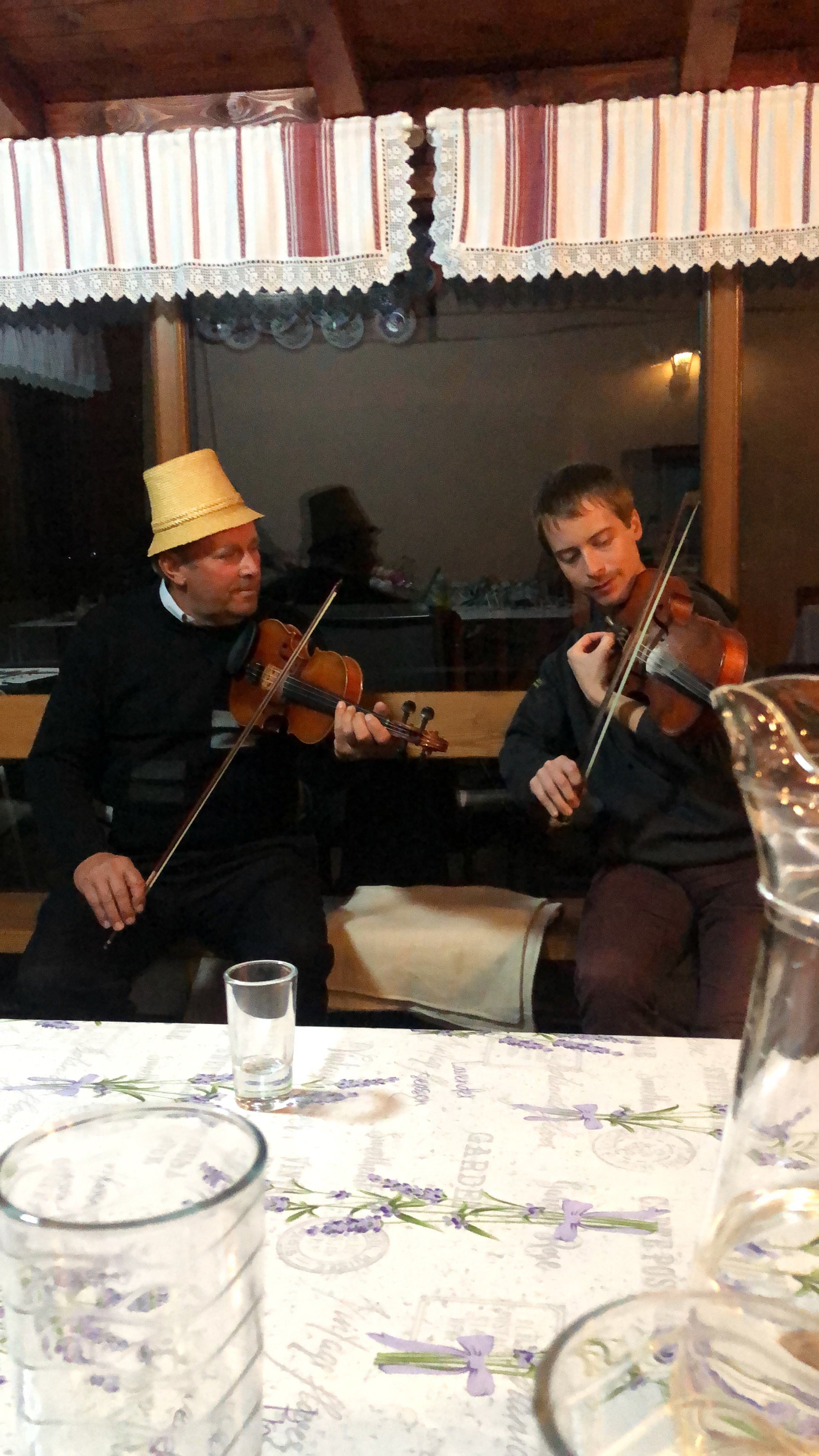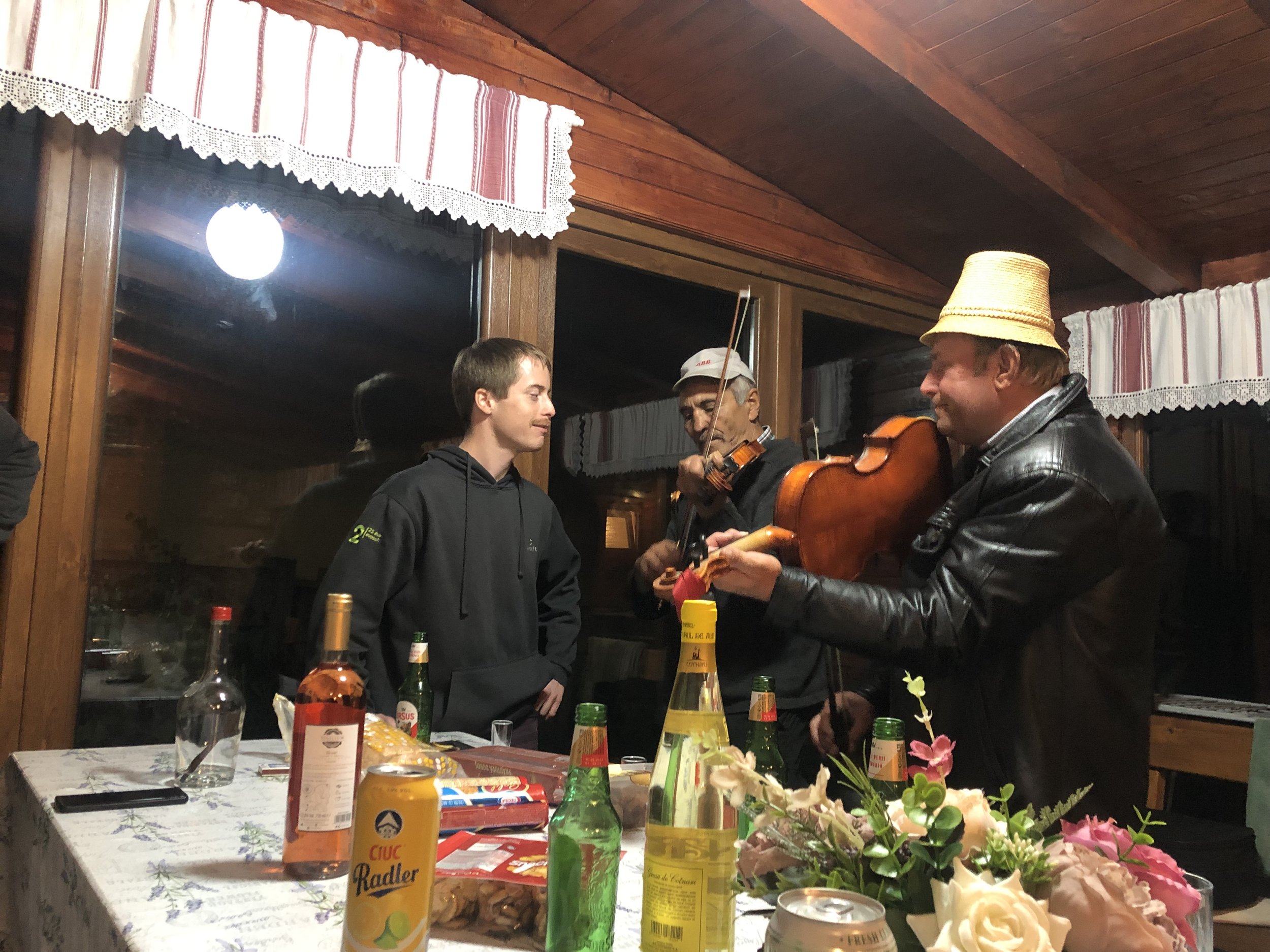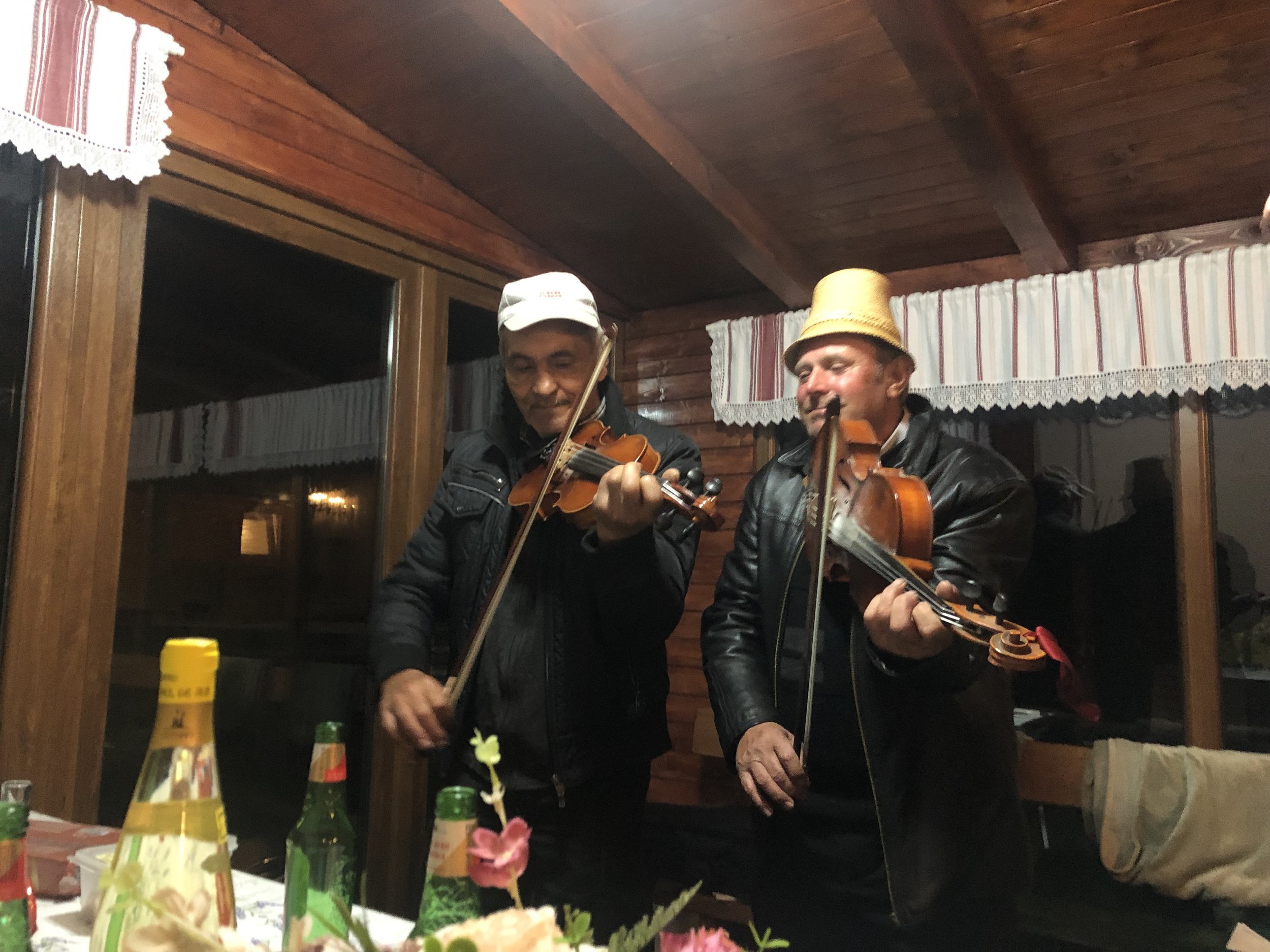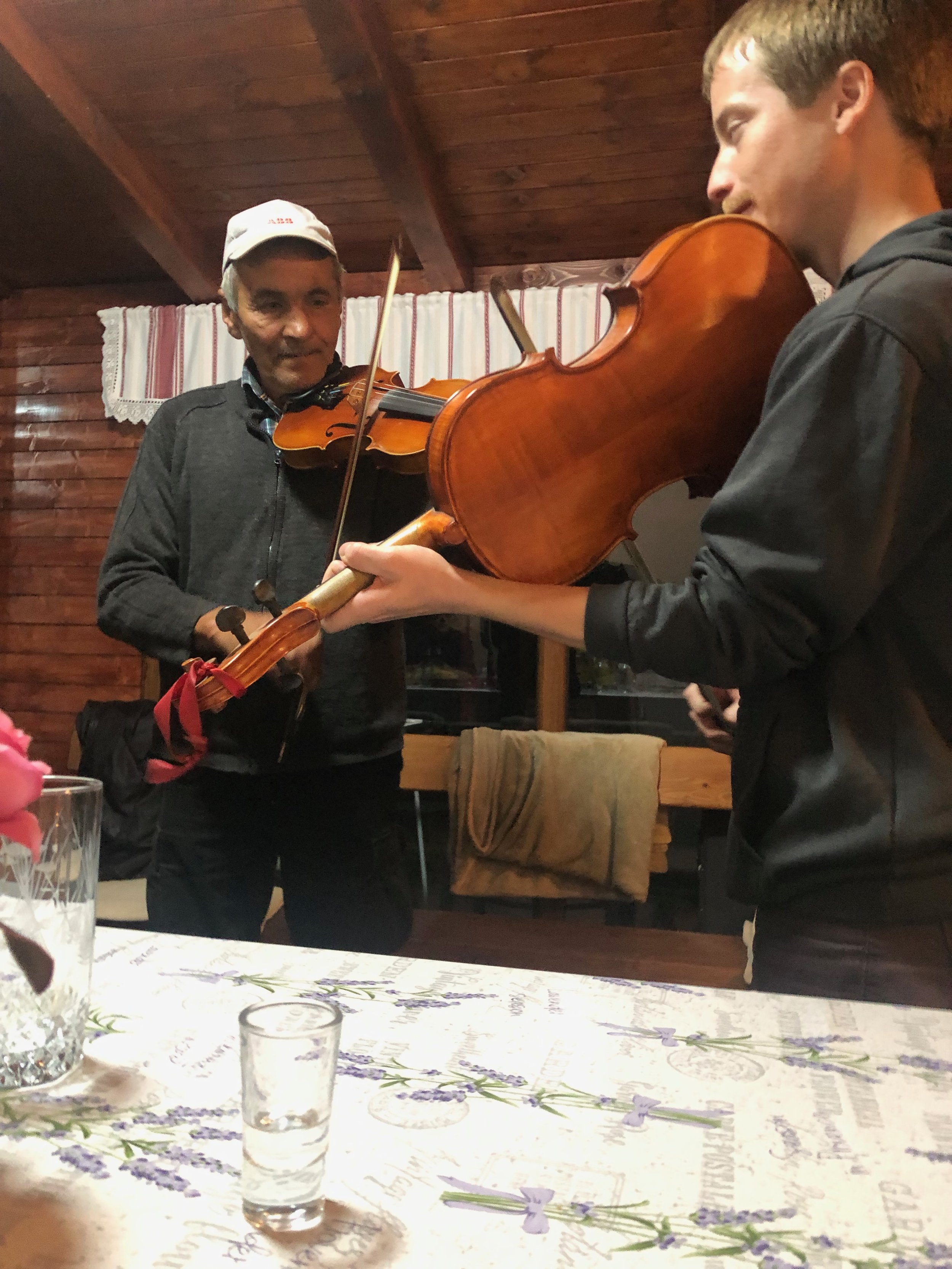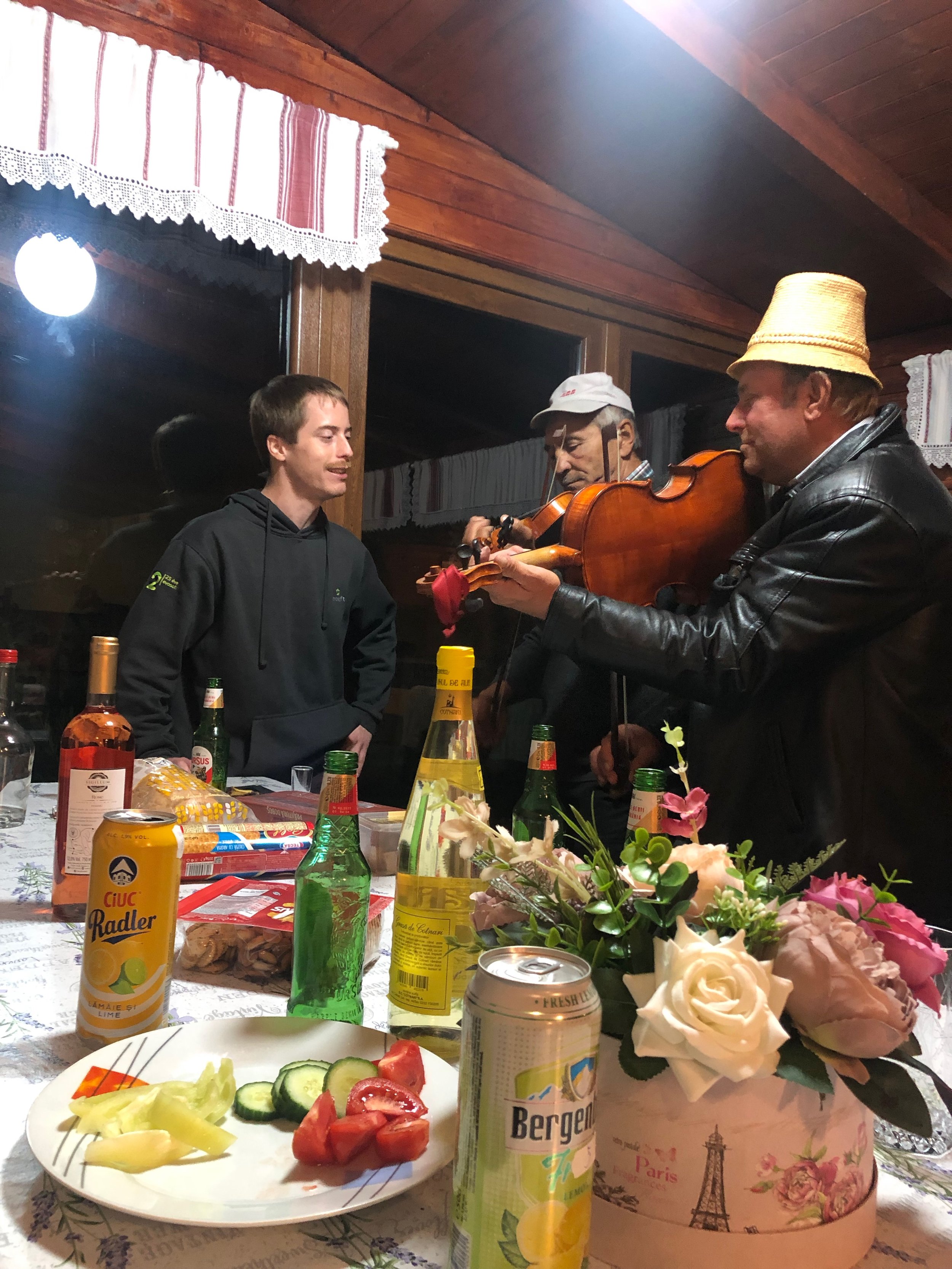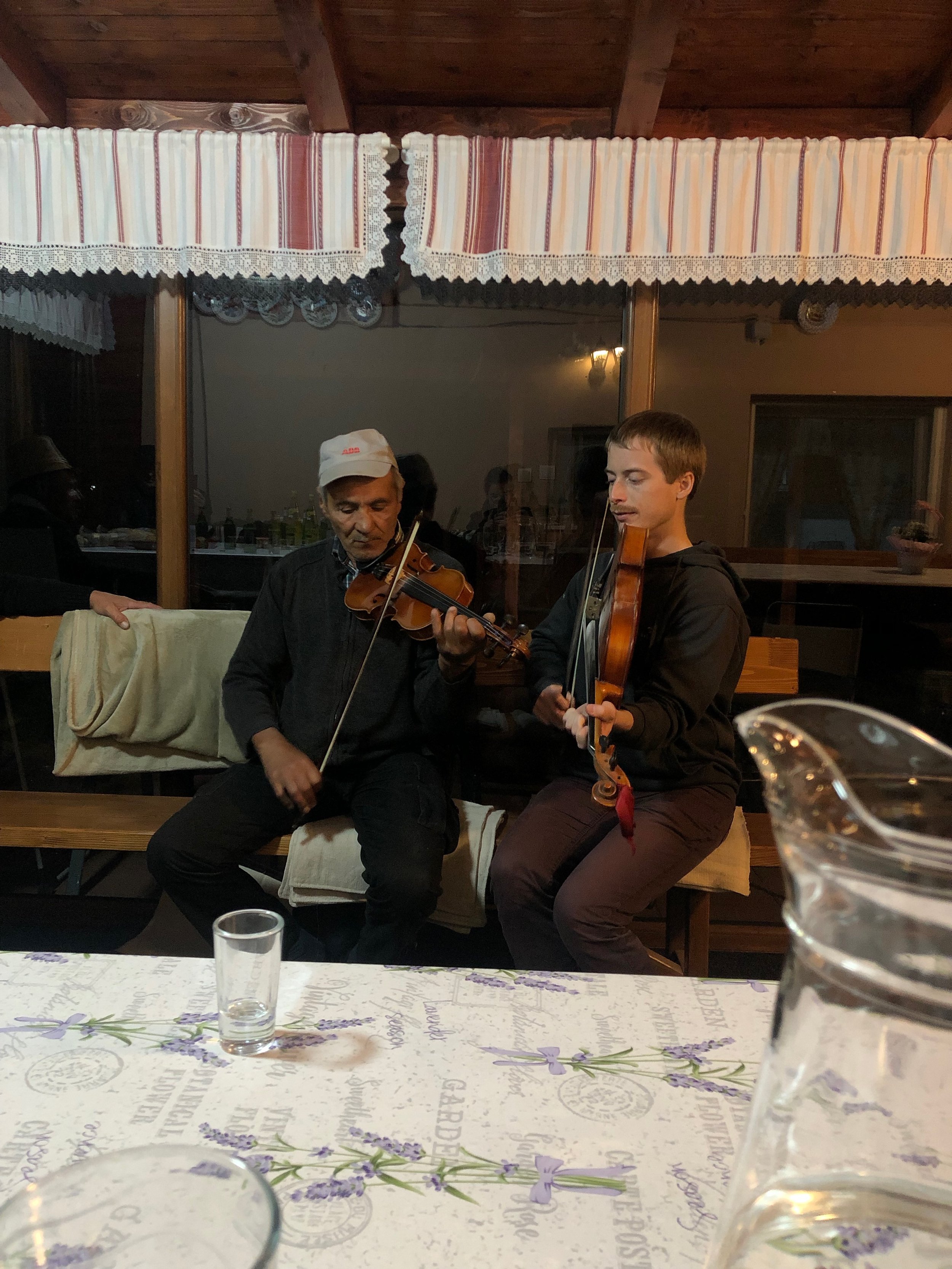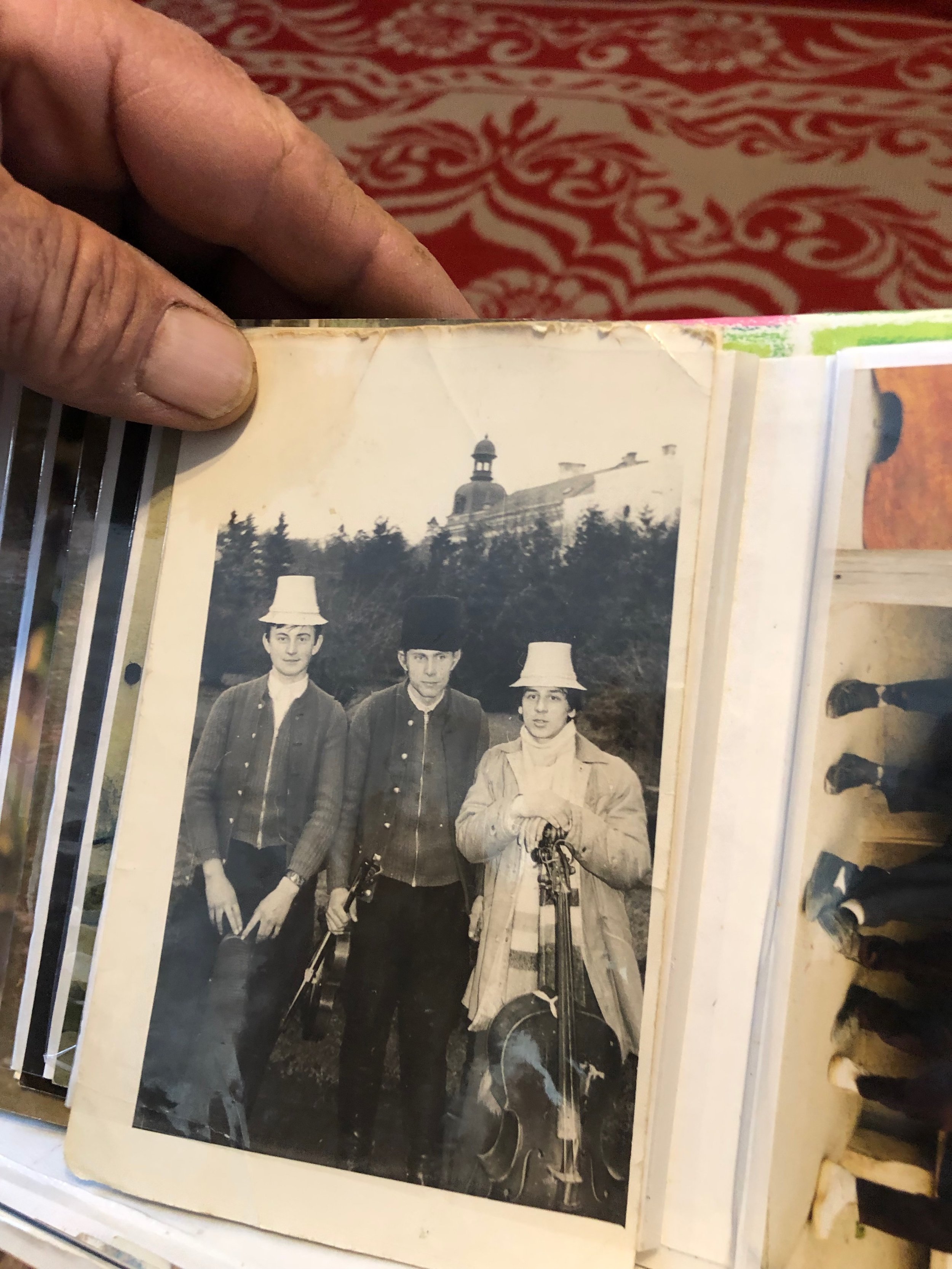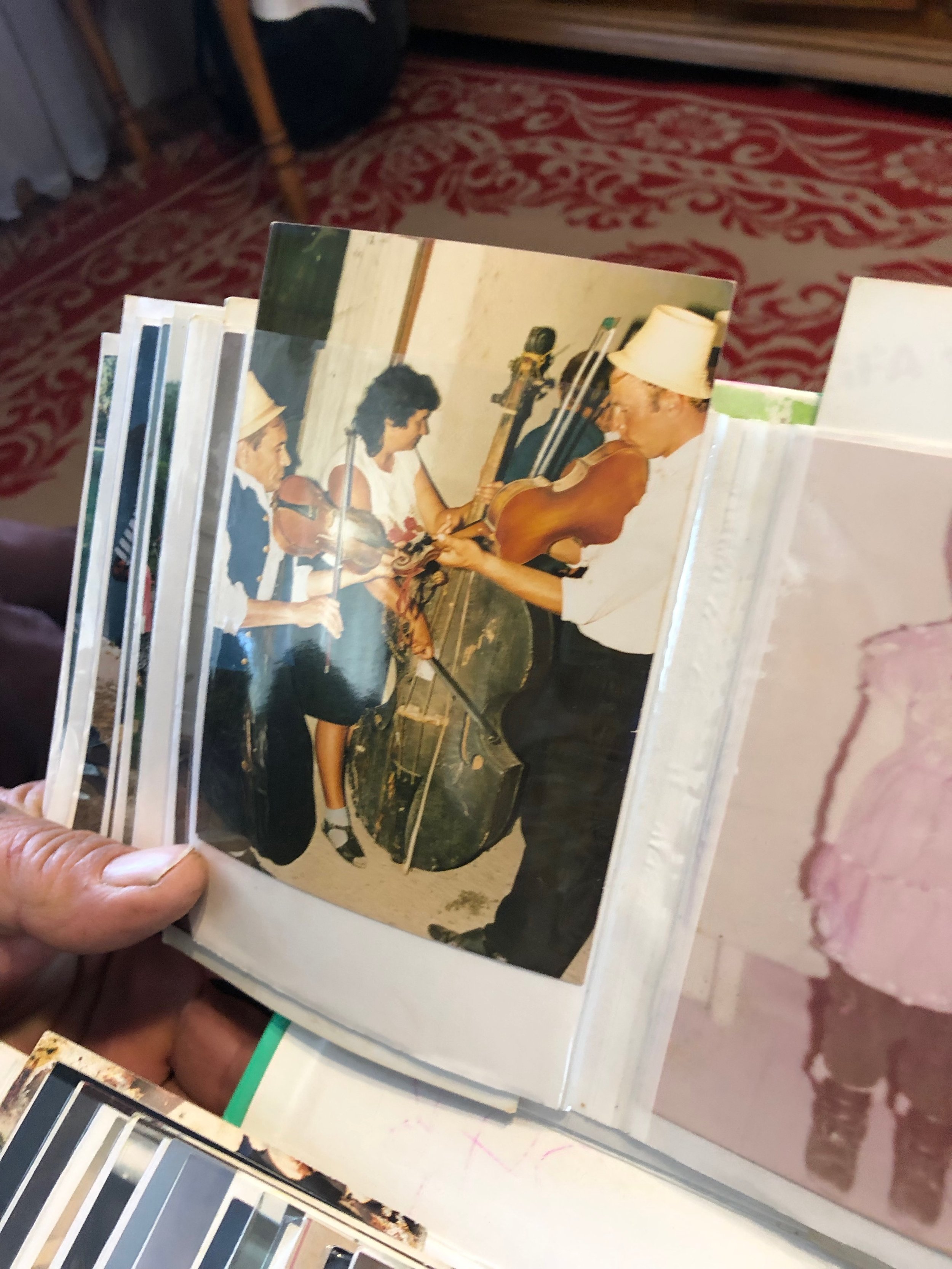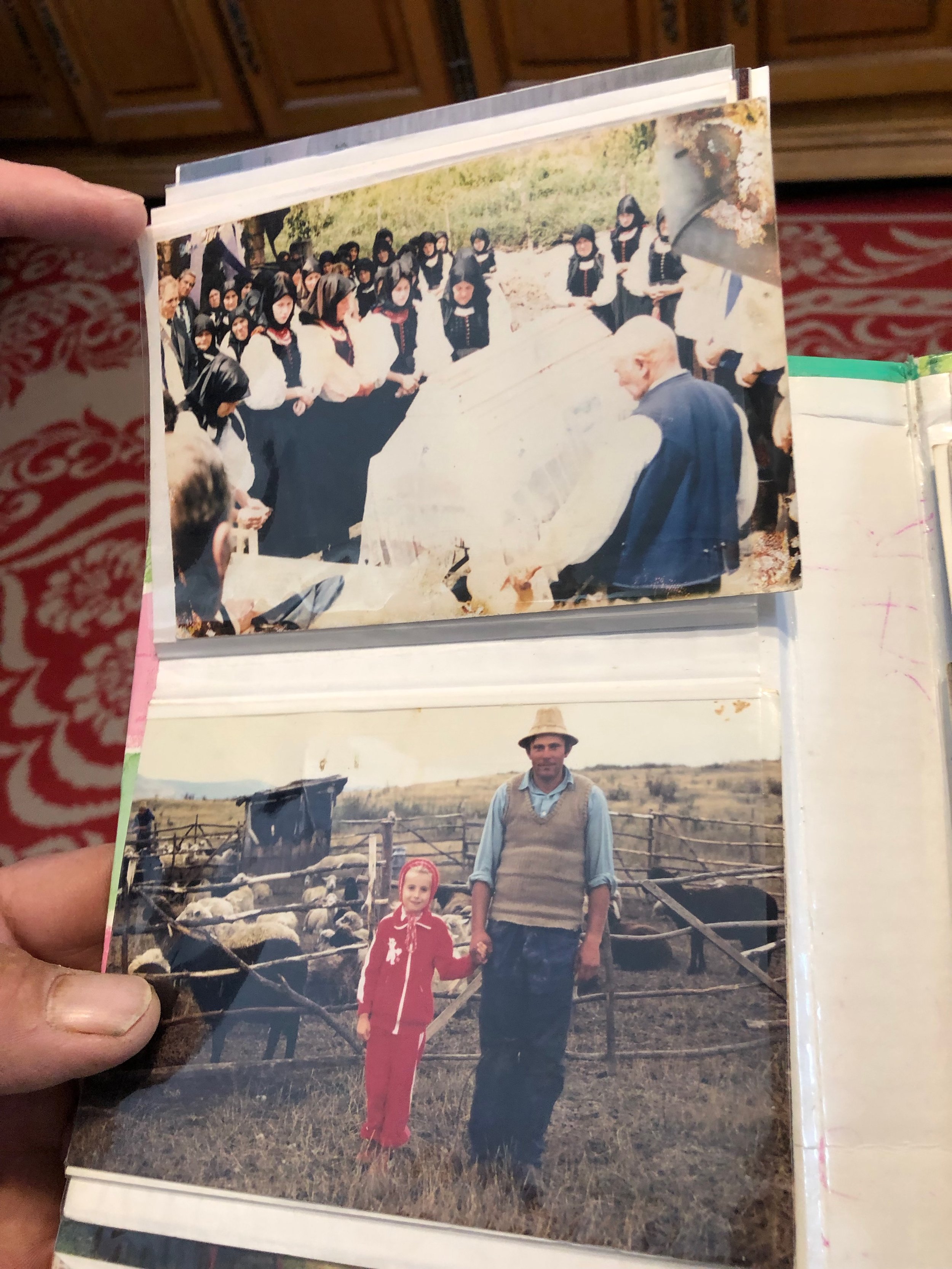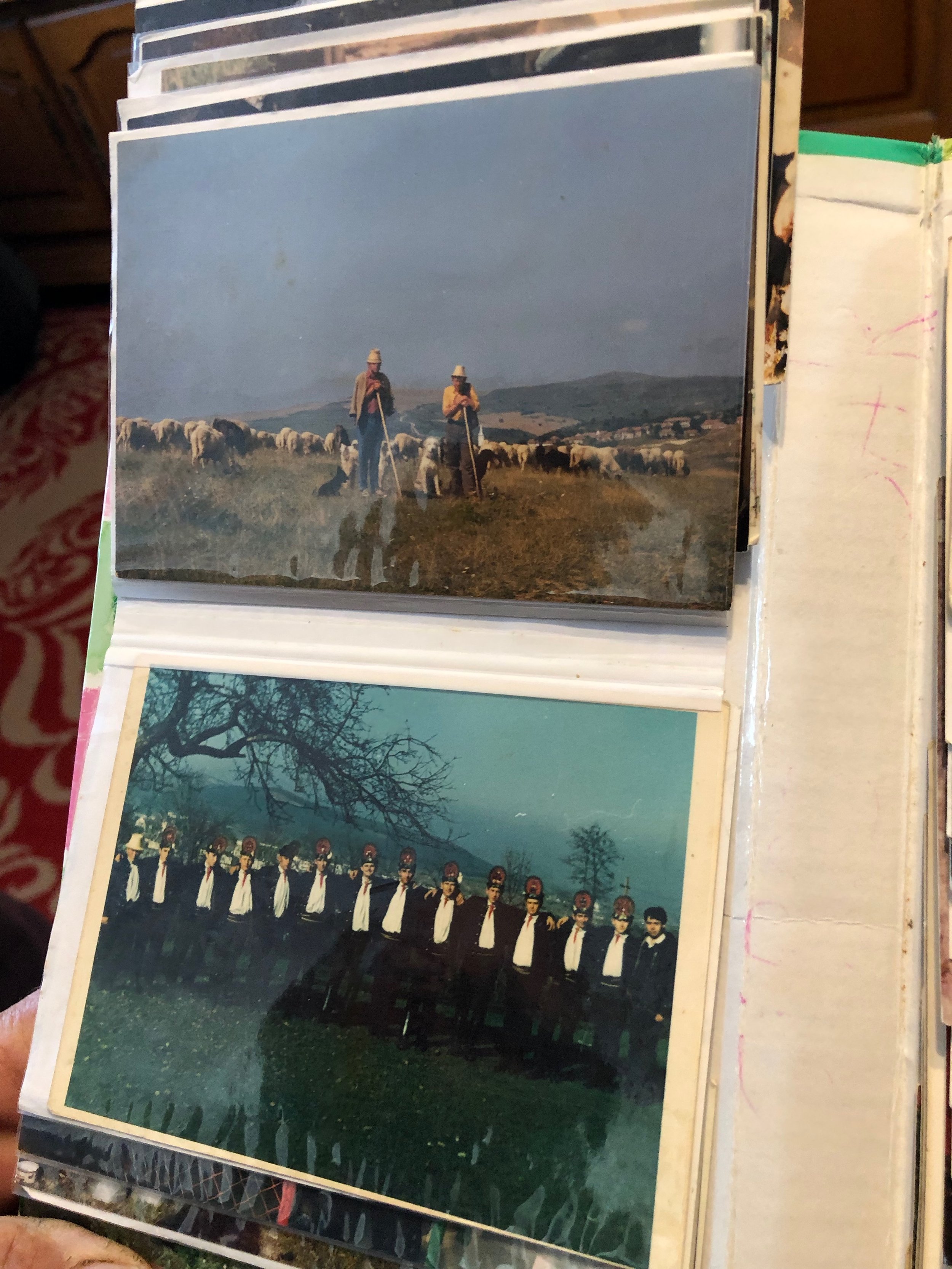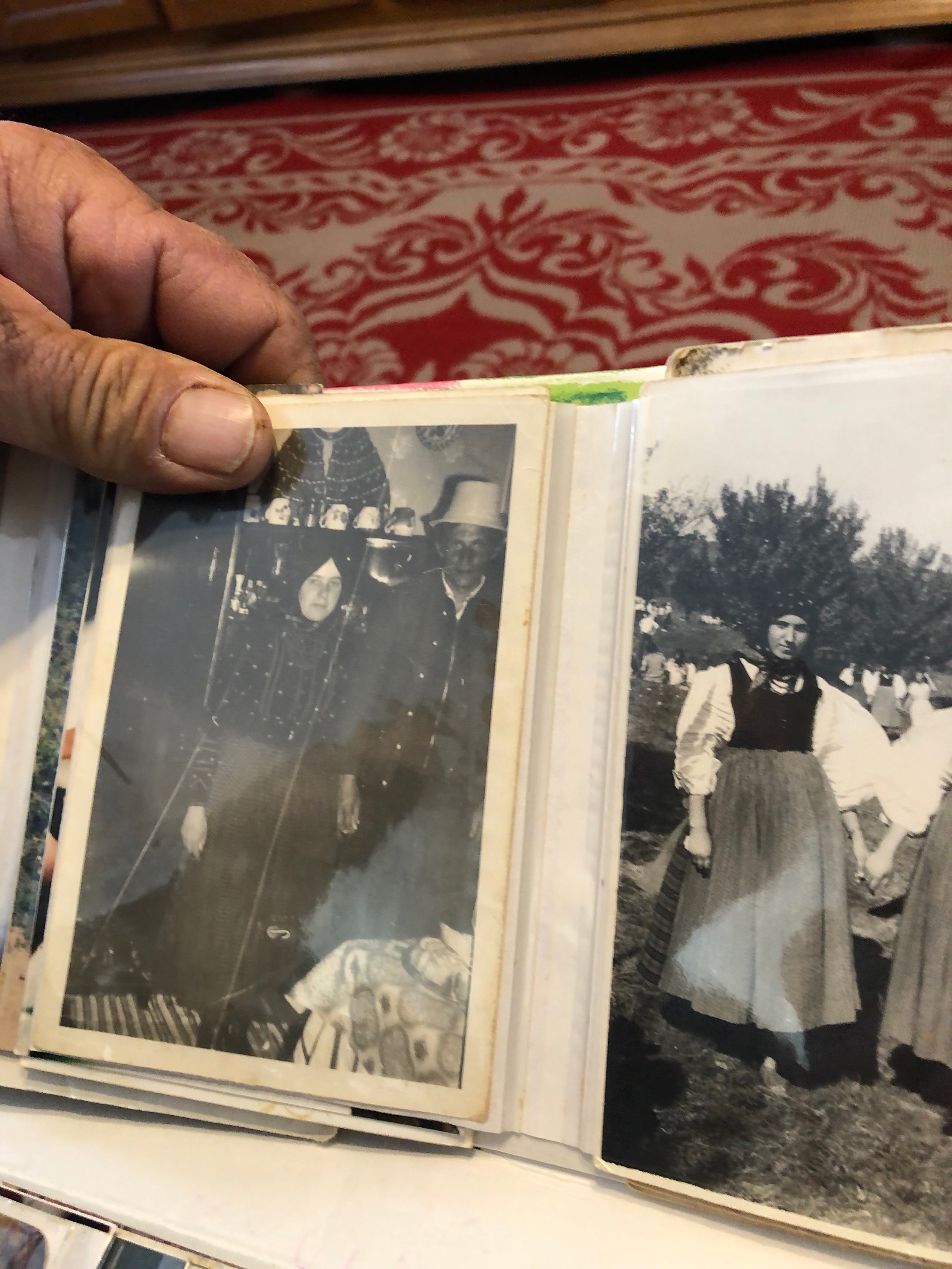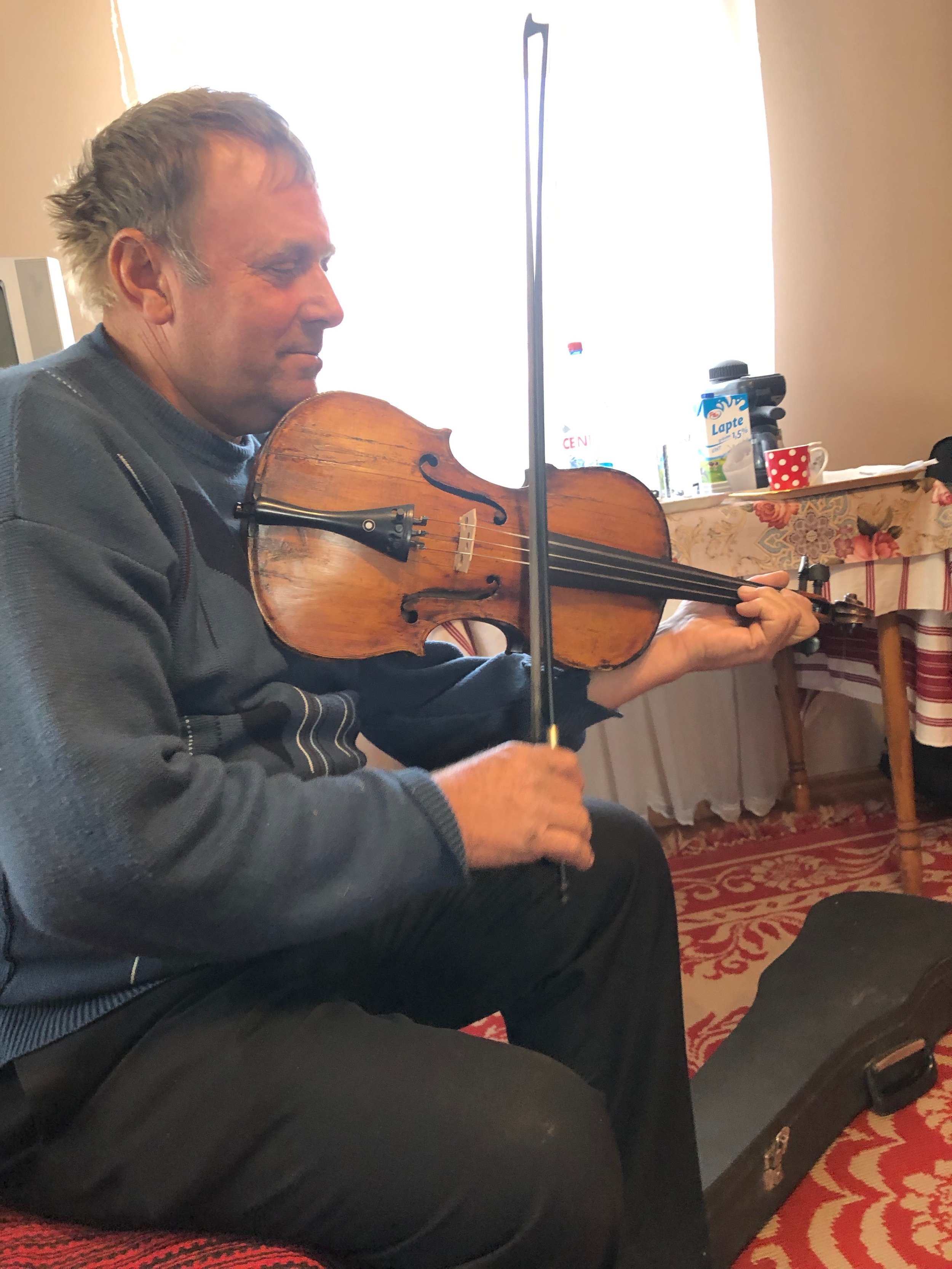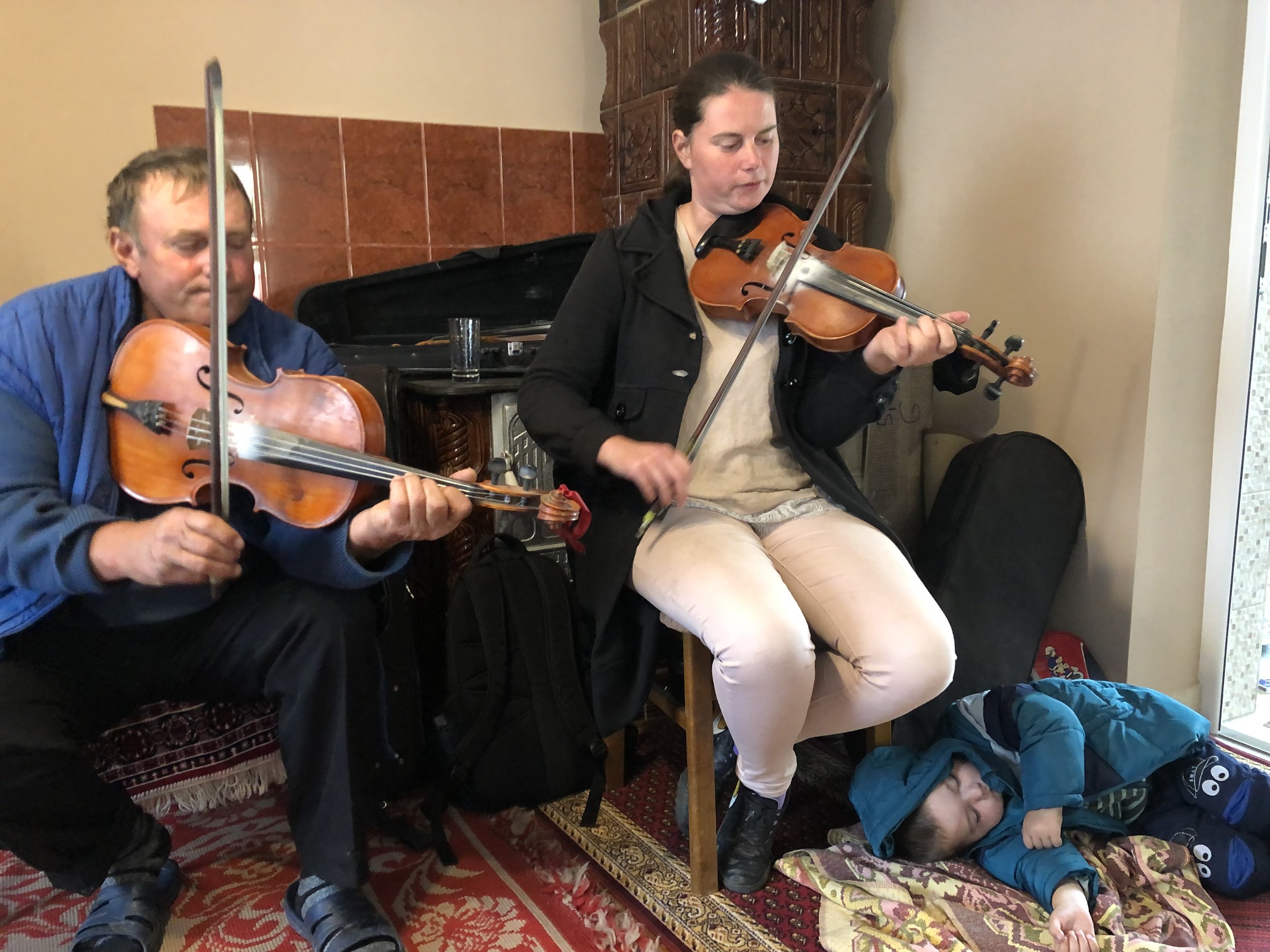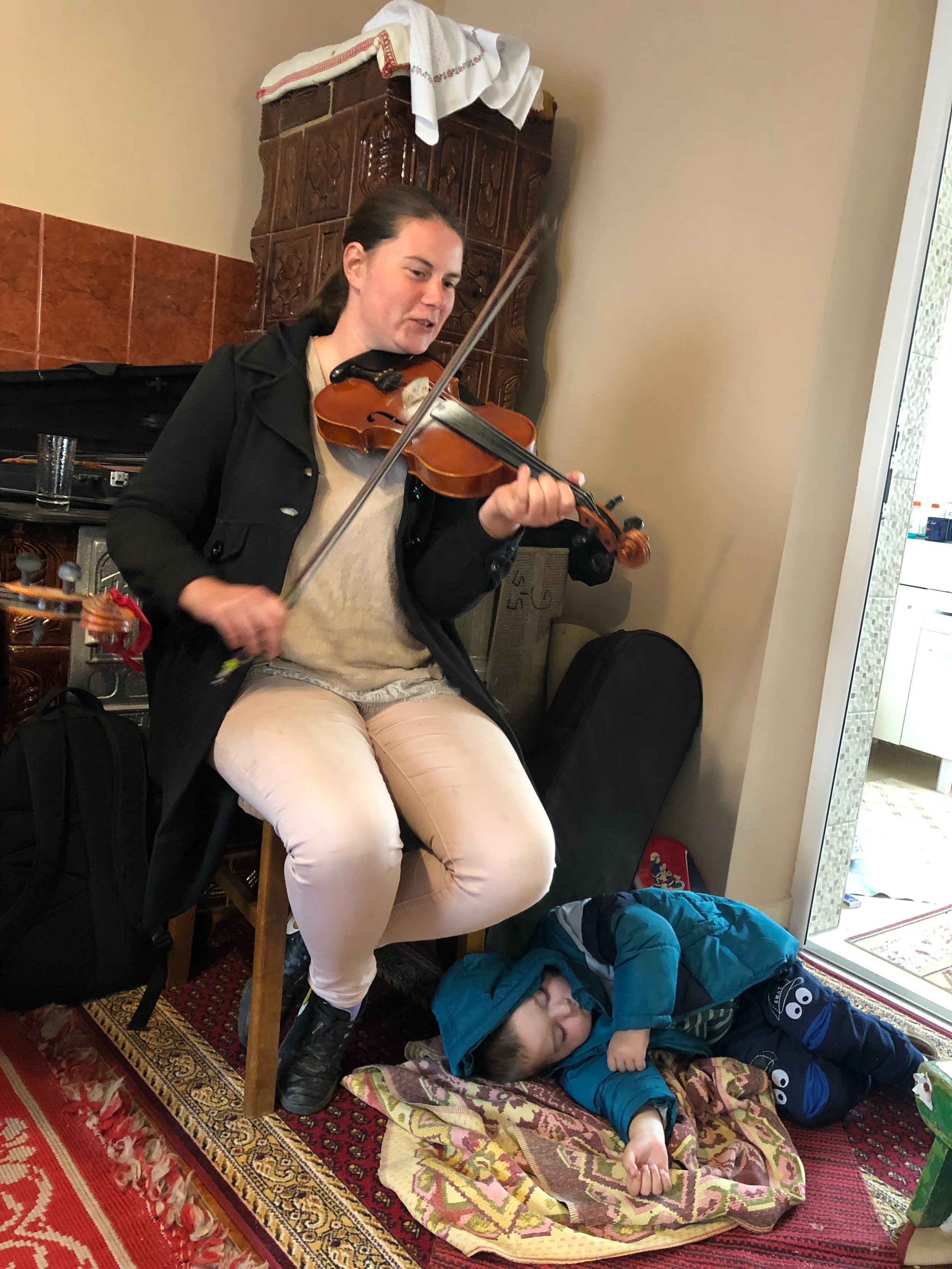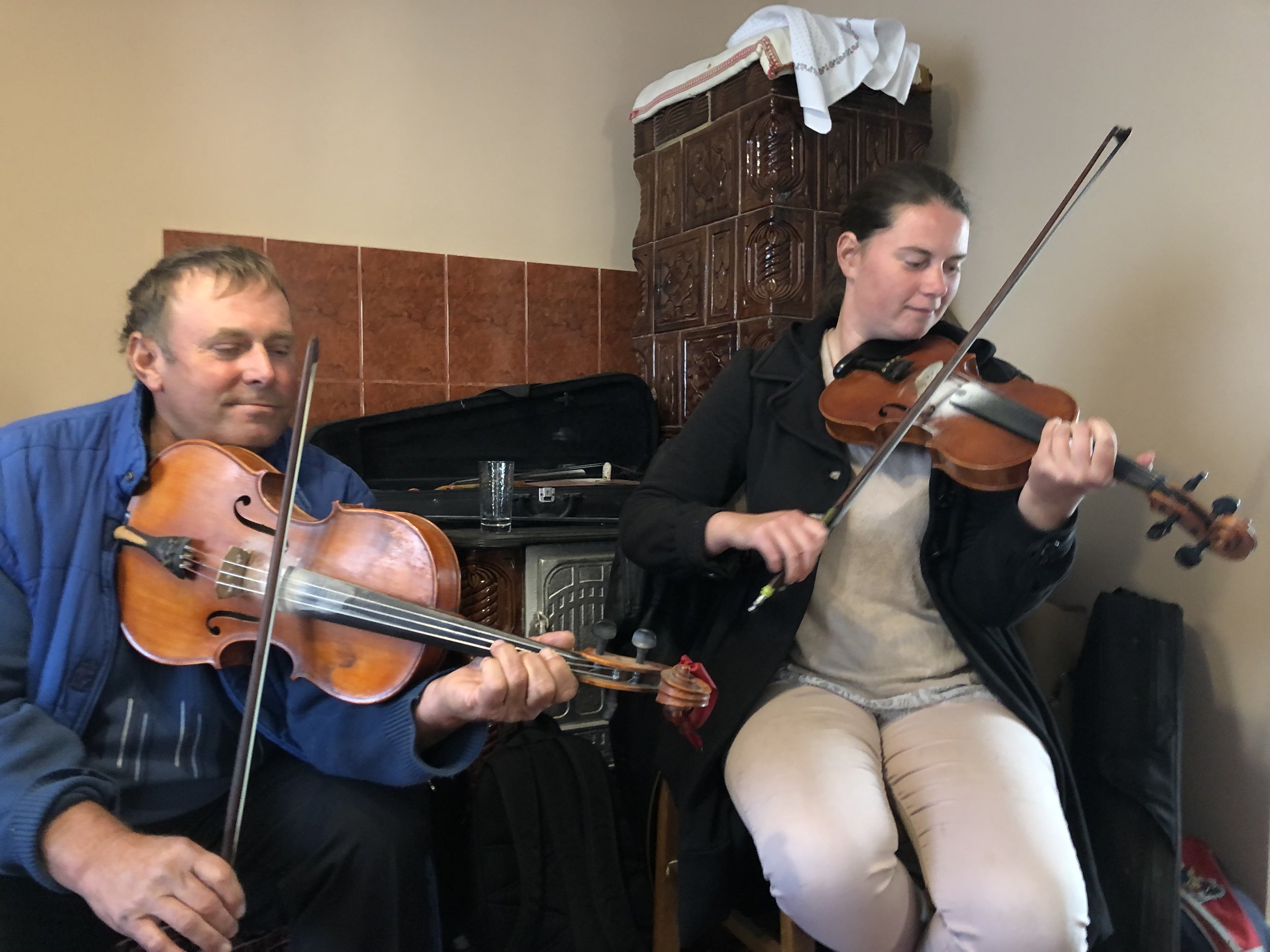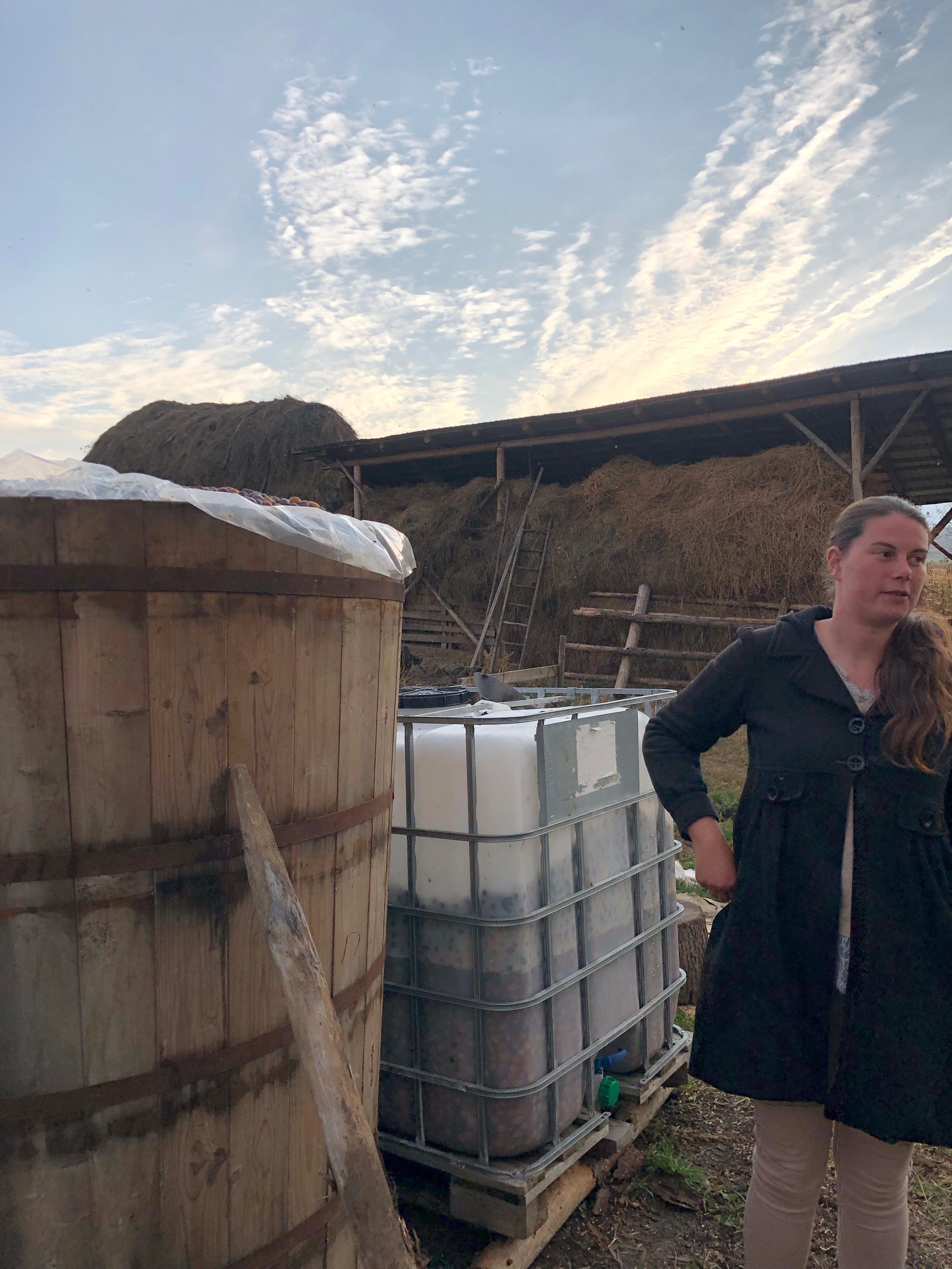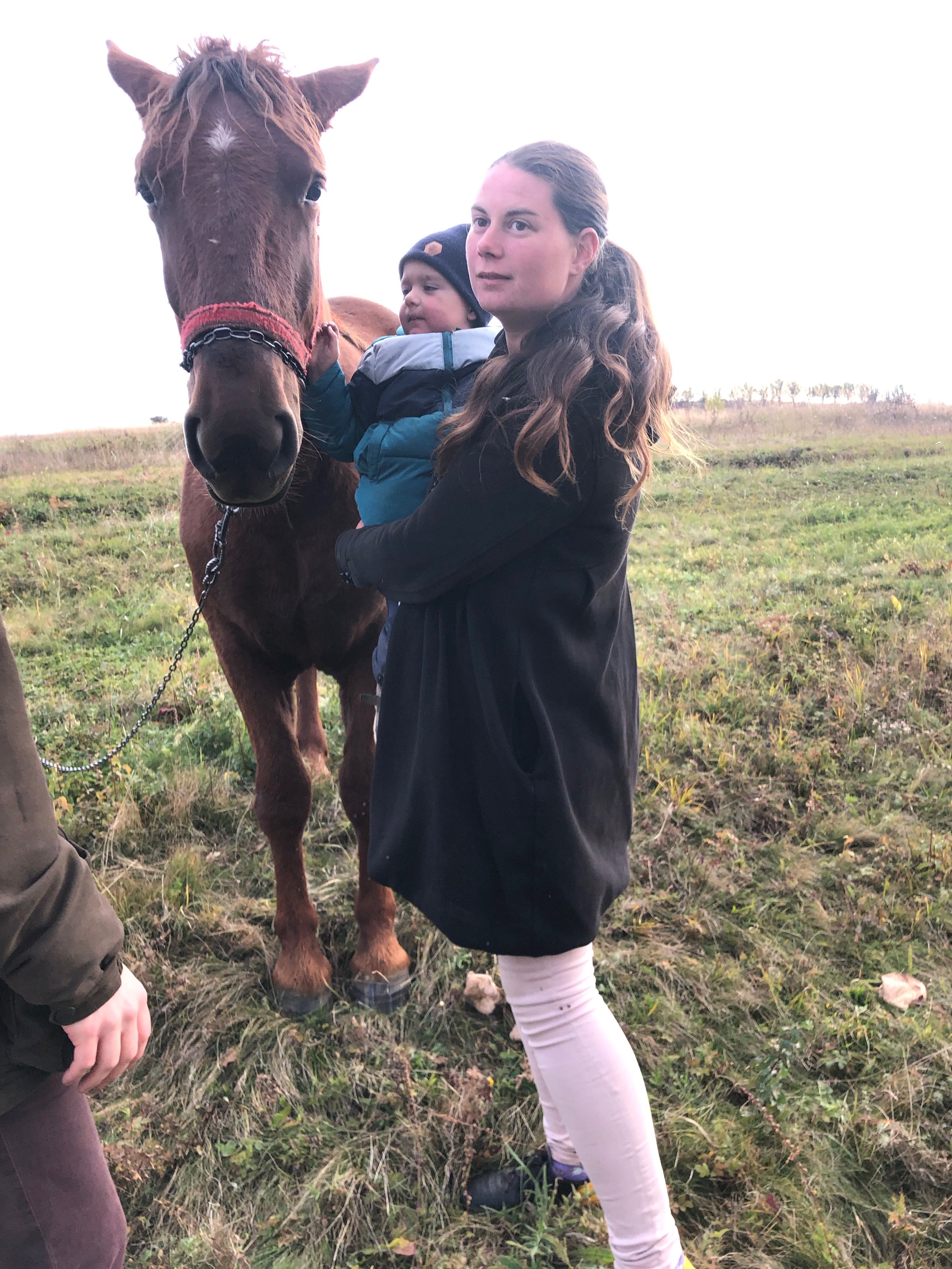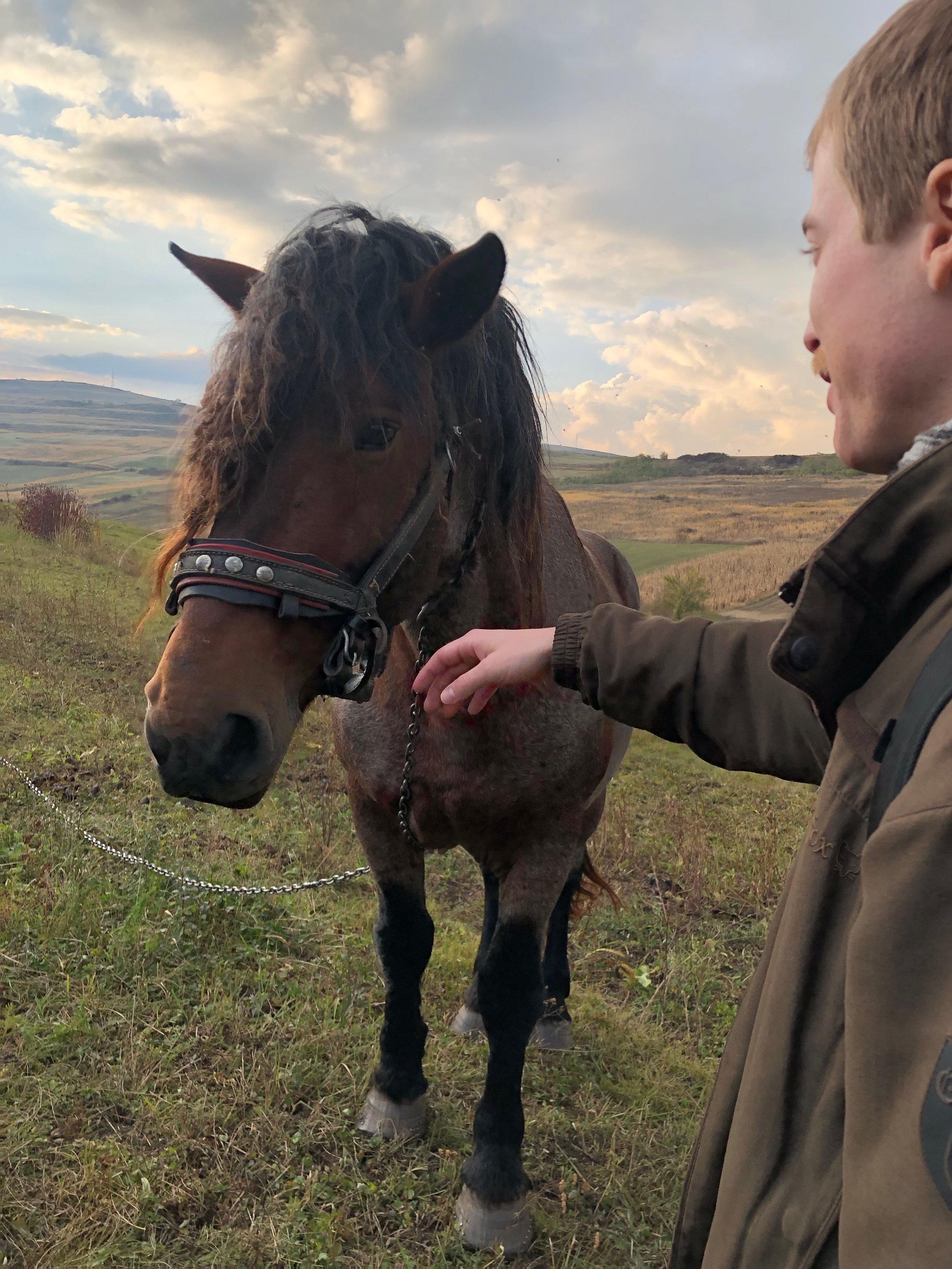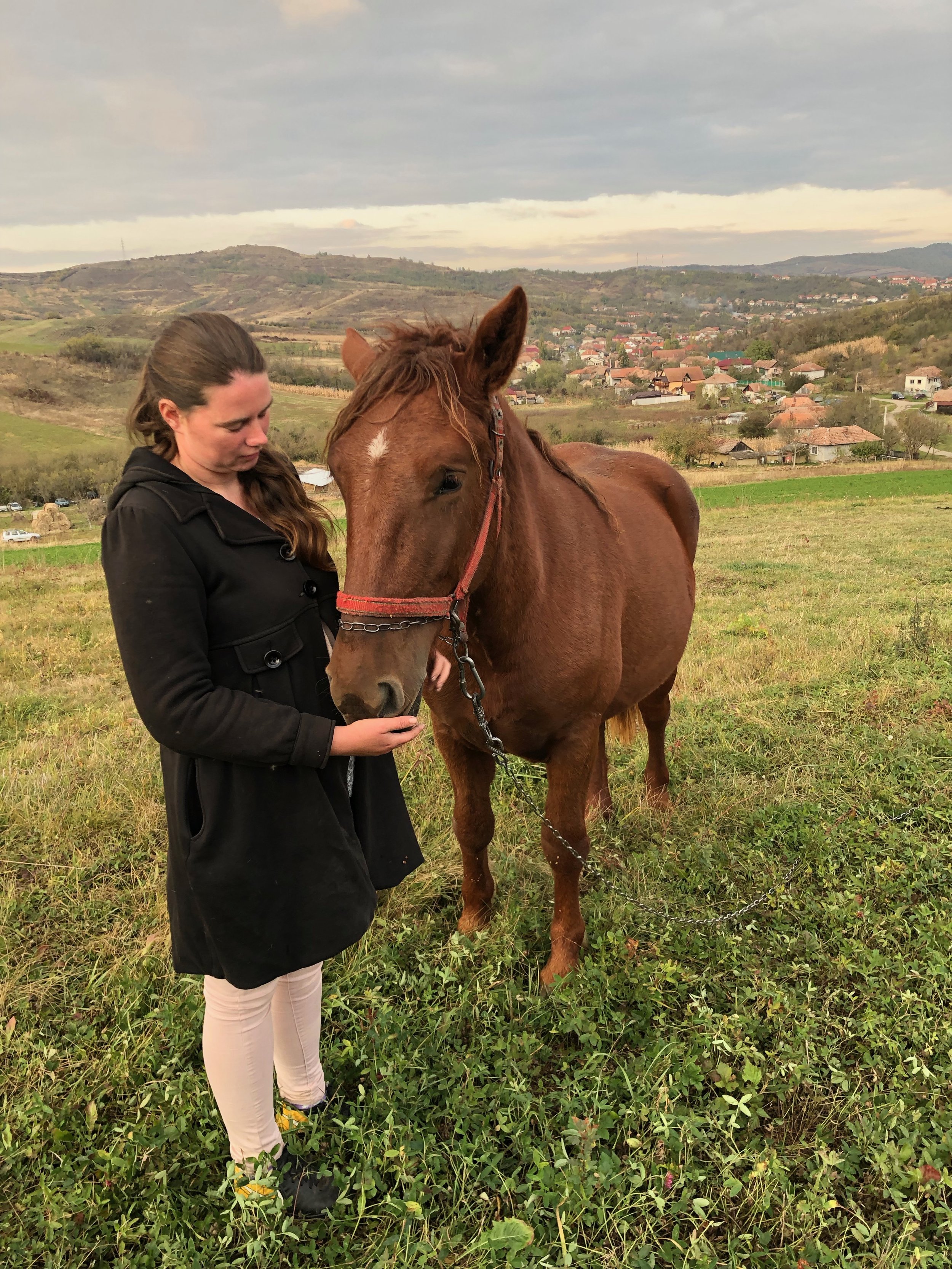After Szék, our next stop was Szászcsávás (Ceuaș), a primarily Hungarian-speaking village nestled in the hills.
I was excited and honored to be able to meet the legendary musician Jámbor István “Dumnezeu”, (whose nickname literally means “G-d” in Romanian— I got more details about his early life when interviewing him, and will post a transcript of that interview on this blog shortly…)
It had rained in the last few days, so the walk to his house went up a muddy lane into a small courtyard surrounded by a few houses, where his grandson and some other young men were chopping wood.
We sat in the back room of his house, which is has an old-fashioned wood-burning stove. From time to time, ducklings would wander into the front room from the yard, and Buba, Dumnezeu’s wife, would shoo them out.
Dumnezeu is confined to a wheelchair because his right leg had to be amputated a few years ago. While talking to us, he re-iterated many times that his ability to play was drastically reduced two years ago, when he had a stroke. After the stroke, he lost his memory for a week, spent a week and a half in the hospital, and “couldn’t even hold a pencil” when he got out. He has regained the ability to play since then, but still has reduced flexibility in his fingers— he has a hard time unbending his first finger on his left hand. Nevertheless, he graciously played some tunes for us.
He also talked to us about his experience touring around the world with the Szászcsávás Band. He has toured to the United States multiple times, Switzerland, even to Japan. He said that he’s proud of what he’s done for his children, adding “I am taking these (tunes) to the earth, you have to take them further”.
We went back the next day with a focus on collecting lyrics for vocal songs— Dumnezeu knows hundreds of songs in Hungarian, Romanian and Romani. Here’s one song he shared with us in Romani. (edit: See my blog post from December 13 for a translation!)
I heard other musicians playing this same melody in later visits to Szászcsávás:
